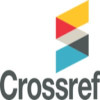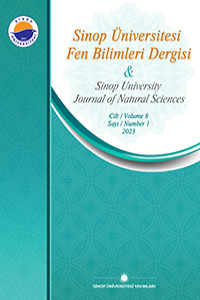Research Article
Aim & Scope
Sinop University Journal of Natural Sciences is continuing its publication life with the purpose of contributing to the world of science by publishing high quality works in all fields of Science. The journal implements the double blind peer review process.
Sinop University Journal of Natural Sciences is the main areas covered by the following.
Biology
Physics
Statistics
Chemistry
Math
All Engineering Areas
Aquaculture Area
Author Guidelines
Ethical Principles and Publication Policy
Sinop University Journal of Natural Sciences (Sinop Uni J Nat Sci) is a double-blind peer reviewed Open Access journal which has been published twice a year (June-December) since 2016 by Sinop University, accepts high quality works written in Turkish or English in the fields of biology, physics, statistics, chemistry, mathematics, aquaculture and all engineering areas. All published items, including research articles, are freely available without charge to the user or his/her institution. Users are allowed to read, download, copy, distribute, print, search, or link to the full texts of the articles without asking prior permission from the publisher or the author.
Sinop University Journal of Natural Sciences is a free open access journal licensed under the Creative Commons Attribution License (CC BY 4.0)
COPYRIGHT TRANSFER FORM
Sinop University Journal of Natural Sciences does not charge the author/authors at any stage (submission, evaluation and publication of articles) for publication procedures. The PDF copies of accepted articles are free of charges, and can be downloaded from the website https://dergipark.org.tr/en/pub/sinopfbd
Price Policy
Sinop University Journal of Natural Sciences does not charge the author/authors at any stage (submission, evaluation and publication of articles) for publication procedures. The PDF copies of accepted articles are free of charges, and can be downloaded from the website https://dergipark.org.tr/en/pub/sinopfbd
Indexes
Journal Boards
Editor in Chief

Sinop Üniversitesi Su Ürünleri Fakültesi'nde görev yapmakta olup lisans öğrenimini 1995, yüksek lisans öğrenimini 1998 ve doktorasını 2005 yılında tamamlamıştır. Su Ürünleri Yetiştiriciliği, Balık Hastalıkları alanında çalışmalarına devam etmektedir.
AKADEMİK GÖREVLER
Prof. Dr. Sinop Üniversitesi Su Ürünleri Fakültesi 2020-
Doç. Dr. Sinop Üniversitesi Su Ürünleri Fakültesi 2015-2020
Dr. Öğretim Üyesi Sinop Üniversitesi Su Ürünleri Fakültesi 2007-2015
Dr. Öğretim Üyesi Ondokuz Mayıs Üniversitesi Su Ürünleri Fakültesi 2005-2007
Arş. Gör. Ondokuz Mayıs Üniversitesi Su Ürünleri Fakültesi 1996-2005
ÇALIŞMA ALANLARI
(i) Ana alan: Su Ürünleri Hastalıkları, Balık Parazitleri
(ii) diğer alanlar: Mikrobiyoloji,
(iii) güncel araştırma alanları: Balık Parazitleri
Co Editor in Chief

Dr. Mustafa Kemal Balki has been working as an academic staff at Sinop University in Turkey since 2006. After receiving his doctorate in 2013, he started working in the Mechanical Engineering Department of the Faculty of Engineering and Architecture. Balki, who received the title of Associate Professor in 2024, has academic studies on optimization in alternative fuels and internal combustion engines. He has also published books related to his field of study. Balki, who has ten years of management experience, currently works as the Vice Dean of the Faculty of Engineering and Architecture.
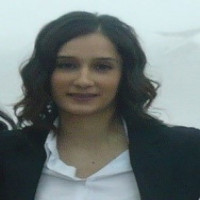
Doç. Dr. Bengünur ÇORAPCI 2009 yılında Sinop Üniversitesi Su Ürünleri Fakültesi'nde Araştırma Görevlisi olarak göreve başlamış olup, 2011 yılında Yüksek Lisans ve 2017 yılında ise Doktora eğitimlerini tamamlamıştır. 2022 yılında Doktor Öğretim Üyesi, 2023 yılında ise Doçent unvanını almıştır. Halen Sinop Üniversitesi, Su Ürünleri İşleme Teknolojisi Anabilim Dalında çalışmalarına devam etmektedir.
Editorial Board





 Web
Web
Müge Erel-Özçevik [S'13 M'19] is an Assoc. Prof. Dr. at the Software Engineering Department of Celal Bayar University, Turkey. She received her PhD, MSc, and BSc degrees in Computer Engineering from Istanbul Technical University, Turkey in 2019, 2015, and 2013 respectively. She graduated from BS with the second rank of honor in the faculty. She has graduated from PhD with 17 international journals and conference papers. She has received “Best Ph.D. Thesis of 2019” in Istanbul Technical University. She currently serves as reviewer in IEEE Transactions on Vehicular Technology (TVT), IEEE Transactions in Wireless Communications (TWC), The International Journal of Communication Systems (IJCS), 2014-present; and The International Journal of Computer and Telecommunications Networking (COMNET), 2015-present; IEEE Transaction on Communications, Ad Hoc networks, IEEE Communication Letters, IEEE Computer Communications (COMCOM), 2017-present. She is the recipient of IEEE CAMAD Best Paper Award (2016) and IEEE INFOCOM Best Poster Paper Award (2015). She has been involved in NFV-SDN 2017, VTC2017-Spring, ICNC ’16 GCNC, ICNC ’15 GCNC, VTC2015-Fall, EAHN-DCOSS 2014 as TCP Member. Her current research includes Software-Defined Networking (SDN), Ultra-Dense Networks (UDN), and Heterogeneous Networks (HetNets). She has also awarded with "Best Teaching Assistant" in Computer Engineering department for both 2015-2016 and 2016-2017 semesters according to votes of professors and students. Moreover, she had been supported by ASELSAN as Graduate Scholarship for Turkish Academicians between November 2016 and June 2019.
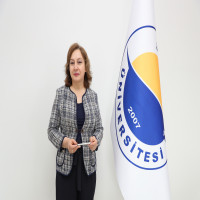
Prof. Dr. Hülya ÖZLER
Sinop Üniversitesi Fen Edebiyat Fakültesi Biyoloji Bölümü

Dr. Mustafa Kemal Balki has been working as an academic staff at Sinop University in Turkey since 2006. After receiving his doctorate in 2013, he started working in the Mechanical Engineering Department of the Faculty of Engineering and Architecture. Balki, who received the title of Associate Professor in 2024, has academic studies on optimization in alternative fuels and internal combustion engines. He has also published books related to his field of study. Balki, who has ten years of management experience, currently works as the Vice Dean of the Faculty of Engineering and Architecture.

CEM CÜNEYT ERSANLI
CURRICULUM VITAE
PERSONAL DATA:
Work Address Department of Physics
Sinop University Faculty of Arts and Sciences
57000
Sinop, Turkey
Phone (+90) 368 271 55 16-4238,
(+90) 368 271 57 85-6670,
0533 252 50 64
e-Mail Address ccersanli@sinop.edu.tr; ccersanli@gmail.com;
Present Position Associate Professor Doctor
Department of Physics
Sinop University
Faculty of Arts and Sciences
Head of Physics Department
RESEARCH APPOINTMENTS:
Undergraduate Physics
Ondokuz Mayıs University
Faculty of Arts and Sciences
Department of Physics, 1994
Samsun, Turkey
M.Sc. Research Assistant, Department of Physics
Ondokuz Mayıs University, Institute of Science and Technology
Field: Atomic and Molecular Physics, 1997
Advisor: Recep TAPRAMAZ, Professor Doctor.
Thesis topic: “EPR investigation of some chemicals absorpted zeolites and of Cu2+ doped glycine.”
Ph.D. Research Assistant, Department of Physics
Ondokuz Mayıs University, Institute of Science and Technology
Field: Solid State Physics, 2004
Advisor: Ahmet ERDÖNMEZ, Professor Doctor.
Thesis topic: “The crystal structure determination of some organic and organometallic crystals.”
ACADEMIC APPOINTMENTS:
8/2017- present Professor Doctor
Department of Physics
Sinop University
Faculty of Arts and Sciences
Sinop, Turkey
3/2012- 8/2017 Associate Professor Doctor
Department of Physics
Sinop University
Faculty of Arts and Sciences
Sinop, Turkey
5/2007-3/2012 Assistant Professor Doctor
Department of Physics
Sinop University
Faculty of Arts and Sciences
Sinop, Turkey
3/2006-5/2007 Assistant Professor Doctor
Department of Physics
Ondokuz Mayıs University
Sinop Faculty of Arts and Sciences
Sinop, Turkey
9/1995-3/2006 Research Assistant, Department of Physics
Ondokuz Mayıs University, Faculty of Arts and Sciences
Samsun, Turkey
3/1995-9/1995 Research Assistant, Department of Physics
Ondokuz Mayıs University, Institute of Science and Technology
Samsun, Turkey
SPECIALIZATION AREA:
Crystallography; density functional theory with structure analysis (single crystal); theoretical calculation; spectroscopic methods (NMR, IR, UV).
ADMINISTRATIVE APPOINTMENTS:
2007-present Sinop University, Faculty of Arts and Sciences, Head of Physics Department
2007-present Sinop University, Faculty of Arts and Sciences, Faculty Board Membership
2023-2024 Sinop University, Faculty of Tourism, Dean
2023-2024 Sinop University, Faculty of Tourism, Faculty Board Membership
2020-2023 Sinop University, Rectorate, Member of Provincial Employment and Vocational
Education Board
2020-2023 Sinop University, Rectorate, Chairman of the Education Commission
2020-2023 Sinop University, Rectorate, Vice Rector
2020-2023 Sinop University, Rectorate, Chairman of the Academic Incentive Regulation,
Supervision and Appeals Commission
2020-2023 Sinop University Advisory Board Membership
2020-2023 Sinop University, Head of Distance Education Commission
2020-2023 Sinop University, School of Tourism and Hotel Management, Director
2020-2023 Sinop University, School of Tourism and Hospitality Management, Board
Membership
2020-2023 Sinop University, Scientific and Technological Researches Application and
Research Center Advisory Board Membership
2020-2023 Sinop University, Rectorate, Chairman of Bologna Coordination Commission
2020-2023 Sinop University, Institute of Graduate Studies, Quantum Systems Head of
Modeling Department
2007-2023 Sinop University, Scientific and Technological Researches Application and
Research Center Board Membership
2020-2021 Sinop University, Rectorate, Chairman of the Quality Commission
2020-2020 Sinop University, Institute of Graduate Studies, Director
2020-2020 Sinop University, Institute of Graduate Studies Board Membership
2019-2020 Sinop University, Boyabat Faculty of Economics and Administrative Sciences,
Dean
2019-2020 Sinop University, Boyabat Faculty of Economics and Administrative Sciences,
Faculty Member of the Board
2019-2019 Sinop University, Vocational School, Director
2019-2019 Sinop University, Vocational School, Board Membership
2018-2019 Sinop University, Boyabat Faculty of Economics and Administrative Sciences,
Faculty Member of the Board
2017-2019 Sinop University, Institute of Graduate Studies, Quantum Systems Head of
Modeling Department
2017-2019 Sinop University, Durağan Vocational School, Director
2017-2019 Sinop University, Durağan Vocational School, Board Membership
2017-2020 Sinop University, Faculty of Theology, Faculty Board Membership
2017-2020 Sinop University, Rectorate, Chairman of the Education Commission
2015-2016 Sinop University, Vocational School, Director
2015-2016 Sinop University, Vocational School, Board Membership
2015-2016 Sinop University, Türkeli Vocational School, Board Membership
2014-1015 Sinop University, Energy Research and Application Center (SÜENAR), Director
2009-2014 Sinop University, School of Tourism and Hospitality Management, Board
Membership
2009-2023 Sinop University Scientific and Technological Research and Application
Research Center (SUBİTAM), Board Membership
2007-2020 Sinop University, Institute of Science and Technology, Institute Board Member
2007-2011 Sinop University, Advisor to the Rector
2007-2011 Sinop University, Faculty of Arts and Sciences, Vice Dean
2006-2007 Ondokuz Mayıs University, Sinop Faculty of Arts and Sciences, Head of
Physics Department
MEMBERSHIP IN PROFESSIONAL ASSOCIATIONS:
National Association of Crystallography (2002-present)
PRIZES:
• Award for oral presentation titled “The Contribution of Nature to Mankind in the Energy Dimension - The Answer Given to Nature”, Canik Municipality, “VI. International Canik Symposium”, 2016.
• First Prize, Faculty of Arts and Sciences, Department of Physics, Ondokuz Mayıs University, 1994.
• Faculty of Arts and Sciences Faculty First Prize, Ondokuz Mayıs University, 1994.
MANAGED THESIS:
ÖZTÜRK SEFA, (2023). Investigation of the structural properties of some hydrazone derivative compounds by theoretical methods, Sinop University, Graduate School of Education, Interdisciplinary Quantum Systems Modeling Department (Completed).
GÜLER FATMA VİLDAN, (2019). Quantum mechanical modeling of some halogen-containing hydrazone compounds, Sinop University, Institute of Science and Technology, Interdisciplinary Quantum Systems Modeling Department (Completed).
MEMİK OSMAN UĞUR, (2018). Investigation of molecular properties of some Schiff base compounds by quantum mechanical methods, Sinop University, Graduate School of Science and Technology, Interdisciplinary Quantum Systems Modeling Department (Completed).
PUBLICATIONS:
Articles published in international refereed journals:
1. Elif Tezel Ersanlı, Cem Cüneyt Ersanlı (2023). Biomimicry: Journey to the Future with the Power of Nature, International Scientific and Vocational Journal (ISVOS Journal), 7(2), 149-160., Doi: 10.47897/bilmes.1388402.
2. Sefa ÖztÜrk, Tuğba Aycan, Zeynep Keleşoğlu, Cem Cüneyt Ersanlı (2023). Quantum Mechanical Calculations, Hirshfeld Surface Analysis, Molecular Docking, ADME and Toxicology Studies of Ethyl 4-chloro-2-[(4-nitrophenyl)hydrazono]-3-oxobutrate Compound, International Scientific and Vocational Journal (ISVOS Journal), 7(2), 109-121. Doi: 10.47897/bilmes.1385170.
3. Çakmak Şükriye, Keleşoğlu Zeynep, Uzun Serap, Veyisoğlu Aysel, Yakan Hasan, Ersanlı Cem Cüneyt (2022). Synthesis, X-ray structure, antimicrobial activity, DFT and molecular docking studies of N-(thiophen-2-ylmethyl)thiophene-2-carboxamide. International Union of Crystallography (IUCr), 78, 1-8., Doi: 10.1107/S2053229622006283.
4. Çakmak Şükriye, Kansız Sevgi, Azam Mohammad, Ersanlı Cem Cüneyt, İdil Önder, Veyisoğlu Aysel, Yakan Hasan, Kütük Halil, Chutia Arunabhiram (2022). Synthesis, Structural Investigation, Hirshfeld Surface Analysis, and Biological Evaluation of N-(3- Cyanothiophen-2-yl)-2-(thiophen-2-yl)acetamide. ACS Omega, 7(13), 11320-11329., Doi: 10.1021/acsomega.2c00318.
5. Çakmak Şükriye, Koşar Başak, Veyisoğlu Aysel, Yakan Hasan, Ersanlı Cem Cüneyt, Kütük Halil (2022). Experimental and theoretical investigations on a furan-2-carboxamide-bearing thiazole: synthesis, molecular characterization by IR/NMR/XRD, electronic characterization by DFT, Hirshfeld surface analysis and biological activity. Acta Crystallographica Section C Structural Chemistry, 78(3), 201-211., Doi: 10.1107/S2053229622002066.
6. Çakmak Osman, Ersanlı Cem Cüneyt, Berkil Akar Kıymet, Karaoğlan Nursel (2022). Structural, spectroscopic, Hirshfeld surface and DFT approach of 3,9-dibromophenanthrene. Organic Communications, 15(1), 59-70., Doi: 10.25135/acg.oc.119.2109.2213.
7. Soylu Özge, Atioğlu Zeliha, Akkurt Mehmet, Ersanlı Cem Cüneyt, Karalı Nilgün Lütfiye (2021). Molecular and crystal structure of 1-methyl5-trifluoromethoxy-1H-indole-2,3-dione 3-[4-(4-methoxyphenyl)thiosemicarbazone]. İstanbul Journal of Pharmacy, 51(1), 59-66., Doi: 10.26650/IstanbulJPharm.2020.0080.
8. Demircioğlu Zeynep, Albayrak Kaştaş Çiğdem, Kaştaş Gökhan, Ersanlı Cem Cüneyt (2021). Synthesis, crystal structure, computational chemistry studies and Hirshfeld surface analysis of two Schiff bases, (E)-2-[(4-bromo-2-methylphenylimino)methyl]-4-methylphenol and (E)-2-[(4-bromo-2-methylphenylimino)methyl]-6-methylphenol. Molecular Crystals and Liquid Crystals, Doi: 10.1080/15421406.2020.1871178.
9. Koşar Başak, Albayrak Kaştaş Çiğdem, Ersanlı Cem Cüneyt (2021). Molecular and electronic structures of two new Schiff base compounds: (E)-2-bromo-6-[(2-bromo-4- methylphenylimino)methyl]-4-chlorophenol and (E)-2-bromo-6-[(4-bromo-3-methylphenylimino) methyl]-4-chlorophenol. Journal of Molecular Structure, 1241(130643), 1-12., Doi: 10.1016/j.molstruc.2021.130643.
10. Ökten Salih, Demircioğlu Zeynep, Çakmak Osman, Ersanlı Cem Cüneyt (2021). Novel methoxyquinoline derivative: Synthesis, characterization, crystal structure, Hirshfeld surface, thermodynamic properties, and quantum chemical calculation of 3,6,8-trimethoxyquinoline. Molecular Crystals and Liquid Crystals, 714(1), 37-58., Doi: 10.1080/15421406.2020.1848260.
11. Çakmak Osman, Ökten Salih, Alımlı Dilek, Ersanlı Cem Cüneyt, Taslimi Parham, Koçyiğit Ümit Muhammet (2020). Novel piperazine and morpholine substituted quinolines: Selective synthesis through activation of 3,6,8-tribromoquinoline, characterization and their some metabolic enzymes inhibition potentials. Journal of Molecular Structure, 1220(128666), 1-12., Doi: 10.1016/j.molstruc.2020.128666.
12. Albayrak Kaştaş Çiğdem, Kaştaş Gökhan, Koşar Başak, Ersanlı Cem Cüneyt (2020). Molecular Structure and Supramolecular Architecture of (E)-2-Bromo-6-[(2,4,6- tribromophenylimino)methyl]-4-chlorophenol. Crystallography Reports, 65(7), 1106-1110., Doi: 10.1134/S1063774520070093.
13. Kaştaş Gökhan, Albayrak Kaştaş Çiğdem, Ersanlı Cem Cüneyt, Koşar Başak (2020). Investigation of the Molecular Structure of (E)-2-Bromo-6-[(4-bromo-2-methylphenylimino)methyl]-4-chlorophenol. Crystallography Reports, 65(3), 463-467.
14. Ekici Öner, Demircioğlu Zeynep, Ersanlı Cem Cüneyt, Çukurovalı Alaaddin (2020). Experimental and theoretical approach: Chemical activity, charge transfer of DNA/ECT, thermodinamic, spectroscopic, structural and electronic properties of N-(4-(3-methyl-3- phenylcyclobutyl)thiazol-2-yl)acetamide molecule. Journal of Molecular Structure, 1204, 1-12., Doi: 10.1016/j.molstruc.2019.127513.
15. Kaştaş Gökhan, Albayrak Kaştaş Çiğdem, Koşar Başak, Ersanlı Cem Cüneyt (2020). The effect of the change in substituents’ positions on the formation of supramolecular networks and the solvent type/substituent dependence of prototropic behavior in three new o-hydroxy Schiff bases. Journal of Molecular Structure, 1200, 1-13., Doi: 10.1016/j.molstruc.2019.127109.
16. Demircioğlu Zeynep, Ersanlı Cem Cüneyt, Alpaslan Gökhan (2019). Local and Global Chemical Activity Calculations of (Z)-Ethyl 4-chloro-2-[2-(2-methyloxyphenyl)hydrazone]-3-oxo-butanoate Crystal by Computational Chemistry and Determination of Charge Transfer with DNA Bases. Sinop University Journal of Natural Sciences, 4(2), 93-108.
17. Demircioğlu Zeynep, Ersanlı Cem Cüneyt, Kaya Kantar Günay, Şaşmaz Selami (2019). Spectroscopic, Hirshfeld surface, X-ray diffraction methodologies and local global chemical activity calculations of 5-(2-methoxy-4-(prop-1-en-1-yl)phenoxy)pyrazine-2,3-dicarbonitrile. Journal of Molecular Structure, 1181, 25-37., Doi: 10.1016/j.molstruc.2018.12.072.
18. Ökten Salih, Ersanlı Cem Cüneyt, Çakmak Osman (2018). Structural Characterization of 6- Bromo-5-nitroquinoline-1-oxide: A Quantum Chemical Study and XRD Investigations. Cumhuriyet Science Journal, 39(4), 940-953., Doi: 10.17776/csj.424045.
19. Çakmak Osman, Ökten Salih, Alımlı Dilek, Saddıqa Aisha, Ersanlı Cem Cüneyt (2018). Activation of 6-bromoquinoline by nitration: synthesis of morpholinyl and piperazinyl quinolines. Arkivoc, 2018(3), 362-374., Doi: 10.24820/ark.5550190.p010.374.
20. Akkoç Senem, Yavuz Sevtap Çağlar, Akkurt Mehmet, Ersanlı Cem Cüneyt (2018). Density functional theory study of a silver Nheterocyclic carbene complex. Journal of the Chinese Advanced Materials Society, 6(2), 112-122., Doi: doi.org/10.1080/22243682.2018.1425906.
21. Ersanlı Cem Cüneyt, Kaya Kantar Günay, Demircioğlu Zeynep, Şaşmaz Selami (2018). 4-(2-Methoxy-4-(prop-1-enyl)phenoxy)phthalonitrile; synthesis, characterization, Hirshfeld surface analysis and chemical activity studies. Molecular Crystals and Liquid Crystals, 667(1), 88-111., Doi: 10.1080/15421406.2018.1528417.
22. Ersanlı Cem Cüneyt, Koşar Başak, Albayrak Kaştaş Çiğdem (2017). Synthesis, X-ray and Quantum Chemical Characterizations Studies on (E)-2-Bromo-4-chloro-6-[(4-chloro-2,5- dimethoxyphenylimino)methyl]phenol Compound. Gazi University Journal of Science, 30(4), 531-543.
23. Ersanlı Cem Cüneyt, Kaya Kantar Günay, Şaşmaz Selami (2017). Crystallographic, spectroscopic (FTIR and NMR) and quantum computational calculation studies on bis(2-methoxy-4-((E)-prop-1-enyl)phenyl)oxalate. Journal of Molecular Structure, 1143, 318-327., Doi: 10.1016/j.molstruc.2017.04.032.
24. Çelik İsmail, Akkurt Mehmet, Ökten Salih, Çakmak Osman, Ersanlı Cem Cüneyt (2017). 6-Bromoquinoline-8-carbonitrile. IUCrData, 2(7), 1-3., Doi: 10.1107/S2414314617009300.
25. Çelik İsmail, Akkurt Mehmet, Ekiz Makbule, Ökten Salih, Tutar Ahmet, Ersanlı Cem Cüneyt (2017). 9-Amino-5,7-dibromo-1,2,3,4-tetrahydroacridine hemihydrate. IUCrData, 2(7), 1-3., Doi: 10.1107/S2414314617010112.
26. Çelik İsmail, Akkurt Mehmet, Ekiz Makbule, Tutar Ahmet, Ökten Salih, Ersanlı Cem Cüneyt (2017). 11-[Bis(trimethylsilyl)amino]-2,4-bis(trimethylsilyl)-7,8,9,10-tetrahydro-6H-cyclohepta[1,2-b]quinoline. IUCrData, 2(6), 1-3., Doi: 10.1107/S2414314617008884.
27. Atioğlu Zeliha, Şeyma Sevinçli Zekiye, Karalı Nilgün Lütfiye, Akkurt Mehmet, Ersanlı Cem Cüneyt (2017). (2Z)-2-(5-Fluoro-1-methyl-2-oxoindolin-3-ylidene)-N-(3-fluorophenyl)hydrazine-1-carbothioamide. IUCrData, 2(6), Doi: 10.1107/S2414314617009002.
28. Çelik İsmail, Ökten Salih, Akkurt Mehmet, Ersanlı Cem Cüneyt, Çakmak Osman, Özbakır Rana (2017). 5,7-Dibromo-8-methoxyquinoline. IUCrData, 2(5), 1-3., Doi: 10.1107/S2414314617006435.
29. Atioğlu Zeliha, Sevinçli Zekiye Şeyma, Karalı Nilgün Lütfiye, Akkurt Mehmet, Ersanlı Cem Cüneyt (2017). 2-(5-Fluoro-1-methyl-2-oxoindolin-3-ylidene)-N-[4-(methylsulfanyl)phenyl] hydrazine-1-carbothioamide. IUCrData, 2(5), 1-3., Doi: 10.1107/S241431461700671X.
30. Rad Javad Amerı, Jarrahpour Alıasghar, Ersanlı Cem Cüneyt, Atioğlu Zeliha, Akkurt Mehmet, Turos Edward (2017). Synthesis of some novel indeno[1,2-b]quinoxalin spiro-β-lactam conjugates. Tetrahedron, 73(8), 1135-1142., Doi: 10.1016/j.tet.2017.01.009.
31. Atioğlu Zeliha, Akkurt Mehmet, Başoğlu Faika, Ulusoy Güzeldemirci Nuray, Köseoğlu Rahmi, Ersanlı Cem Cüneyt (2017). (Z)-N’-(3-Ethyl-4-oxothiazolidin-2-ylidene)-2-[6-(4- methoxyphenyl)imidazo[2,1-b]thiazol-3-yl]acetohydrazide. IUCrData, 2(x170040), 1-3., Doi: 10.1107/S2414314617000402.
32. Çelik İsmail, Ökten Salih, Ersanlı Cem Cüneyt, Akkurt Mehmet, Çakmak Osman (2016). 6 Bromo 1 2 3 4 tetrahydroquinoline 8 carbonitrile. IUCrData, 1(11), 1-6., Doi: 10.1107/S241431461601854X.
33. Çelik İsmail, Ersanlı Cem Cüneyt, Köseoğlu Rahmi, Akşit Hüseyin, Erenler Ramazan, Demirtaş İbrahim, Akkurt Mehmet (2016). Crystal structure of 3, 4a, 7, 7, 10a-pentamethyl-3-vinyldodecahydro-1H-benzo[f]chromen-9-ol isolated from Sideritis perfoliata Acta Crystallographica Section E Crystallographic Communications, 72(10), 1380-1382., Doi: 10.1107/S2056989016013864.
34. Çelik İsmail, Ersanlı Cem Cüneyt, Akkurt Mehmet, Akşit Hüseyin, Erenler Ramazan (2016). Synthesis Crystal Structure and Theoretical Characterization of (3R, 4R, 6S)-3, 6- dihydroxy-1-menthene Isolated from Echinophora tenuifolia. Gazi University Journal of Science, 29(4), 953-957.
35. Çelik İsmail, Ersanlı Cem Cüneyt, Akkurt Mehmet, Gezegen Hayreddin, Köseoğlu Rahmi (2016). Crystal structure of racemic [(1R, 2S, 3R, 4S, 6S)-2, 6-bis(furan-2-yl)-4-hy droxy-4-thiophen-2-yl)cyclohexane-1 3-diyl] bis(thiophen-2-ylmethanone). Acta Crystallographica Section E Crystallographic Communications, 72(7), 976-979., Doi: 10.1107/S2056989016009452.
36. Abdullah M Asiri, Ersanlı Cem Cüneyt, Şahin Onur, Arshad Muhammad Nadeem, Hameed Salem A (2016). Molecular structure spectroscopic and quantum chemical studies of 1’, 3’, 3’- trimethylspirobenzo[f]chromene-3,2’-indoline. Journal of Molecular Structure, 1111, 108-117., Doi: 10.1016/j.molstruc.2016.01.086.
37. A Kahan Salman, Y Obaid Abdullah, M Alharbi Laila, Arshad Muhammad Nadeem, Şahin Onur, Ersanlı Cem Cüneyt, RM Abdel Rehman, Abdullah M Asiri, Michael B Hursthouse (2015). Synthesis spectroscopic UV vis and GIAO NMR crystallographic and theoretical studies of triazine heterocyclic derivatives. Journal of Molecular Structure, 1096, 29-37., Doi: 10.1016/j.molstruc.2015.04.036.
38. Padmanabha S Manjula, Sarojini Balladka K, Hemmige S Yathirajan, Akkurt Mehmet, Ersanlı Cem Cüneyt, Glidewell Christopher (2015). The crystal structures of three 3-methyl-1H-1,2,4 triazole-5-thiones, including a second polymorph of 4-[(E)-(5-bromo-2-hydroxybenzylidene)amino]-3-methyl-1H-1,2,4-triazole-5(4H)-thione and a redetermination of 4-amino-3-methyl-1H-1,2,4-triazole-5(4H)-thione. Acta Crystallographica Section E Crystallographic Communications, 71(9), 1003-1009., Doi: 10.1107/S205698901501422X.
39. Subbulakshmi Karanth N, Narayana Badiadka, Yathirajan Hemmige S, Akkurt Mehmet, Çelik Ömer, Ersanlı Cem Cüneyt, Glidewell Christopher (2015). Dihydrooxazolones and dihydroimidazolones derived from acylglycines syntheses molecular structures and supramolecular assembly. Acta Crystallographica Section C Structural Chemistry, 71(8), 742-751., Doi: 10.1107/S2053229615013637.
40. Vinutha V Salian, Badiadka Narayana, Hemmige S Yathirajan, Akkurt Mehmet, Çelik Ömer, Ersanlı Cem Cüneyt, Christopher Glidewell (2015). A chalcone showing positional disorder two related diarylcyclohexenones showing enantiomeric disorder and a related hydroxyterphenyl all derived from simple carbonyl precursors. Acta Crystallographica Section C Structural Chemistry, 71(7), 610-617., Doi: 10.1107/S2053229615011961.
41. Koşar Başak, Albayrak Çiğdem, Ersanlı Cem Cüneyt, Mustafa Odabaşoğlu, Orhan Büyükgüngör (2012). Molecular structure spectroscopic investigations second order nonlinear optical properties and intramolecular proton transfer of (E)-5-(diethylamino)-2-[(4- propylphenylimino)methyl]phenol: A combined experimental and theoretical study. Spectrochimica Acta Part A- Molecular and Biomolecular Spectroscopy, 93(93), 1-9.
42. Çelik İsmail, Ersanlı Cem Cüneyt, Akkurt Mehmet, Daştan Arif, Garcia-Granda Santiago (2007). Crystal Structure of (1RS, 2SR, 3SR ,4SR, 9RS)-1,2,3,9-tetrabromo-1,2,3,4-tetrahydro- 1,4-methanonaphthalene. The Japan Society for Analytical Chemistry, 23(23), 133-135., Doi: DOI:10.2116/analscix.23.x133.
43. Çelik İsmail, Ersanlı Cem Cüneyt, Akkurt Mehmet, Demirtaş İbrahim (2007). Crystal and Molecular Structure of N-Trityl-m-aminophenol Chloroform Solvate. The Japan Society for Analytical Chemistry, 23(23), 231-232.
44. Heren Zerrin, Keser Cem, Ersanlı Cem Cüneyt, Zafer Yeşilel Okan, Ocak İskeleli Nazan (2006). Synthesis Spectral and Thermal Studies and Crystal Structure of cis-Bis(4- methylimidazole)bis(picolinato)copper(II) [Cu(pic)2(4-MeIm)2]. Zeitschrift Fur Naturforschung Section B-A Journal of Chemical Sciences, 61(10), 1217-1221.
45. Çelik İsmail, Akkurt Mehmet, Erenler Ramazan, Çakmak Osman, Ersanlı Cem Cüneyt (2006). trans,trans,trans-1,4-Dimethoxy-2,3,5,8-tetrabromotetralin. Acta Crystallographica Section E Structure Reports Online, 62(10), 4609-4610., Doi: 10.1107/S1600536806037949.
46. Heren Zerrin, Keser Cem, Ersanlı Cem Cüneyt, Yeşilel Okan Zafer, Büyükgüngör Orhan (2006). Synthesis Spectral and Thermal Studies and Crystal Structure of cis-Bis(imidazole)bis(picolinato)copper(II) Dihydrate[Cu(pic)2(im)2].2H2O. Zeitschrift Fur Naturforschung Section B-A Journal of Chemical Sciences, 61(9), 1072-1078.
47. Çelik İsmail, Ersanlı Cem Cüneyt, Akkurt Mehmet, Daştan Arif, Garcia-Granda Santiago (2006). (1RS, 2RS, 3SR, 4SR, 9RS)-1,2,3,9-Tetrabromo-1,2,3,4-tetrahydro-1,4-methanonaphthalene. Acta Crystallographica Section E Structure Reports Online, 62(8), 3483-3485., Doi: 10.1107/S1600536806027723.
48. Ersanlı Cem Cüneyt, Albayrak Kaştaş Çiğdem, Odabaşoğlu Mustafa, Büyükgüngör Orhan (2006). (Z)-6-{[1,3-Dihydroxy-2-(hydroxymethyl)propan-2-ylamino]methylene}-2- methoxy-4-[(E)-o-tolyldiazenyl]cyclohexa-2,4-dienone. Acta Crystallographica Section C Crystal Structure Communications, 62(8), 483-485., Doi: 10.1107/S010827010602052X.
49. Alpaslan Gökhan, Özdamar Özgür, Odabaşoğlu Mustafa, Ersanlı Cem Cüneyt, Erdönmez Ahmet (2006). (Z)-Ethyl 4-chloro-3-oxo-2-(2-o-tolylhydrazono)butanoate. Acta Crystallographica Section E Structure Reports Online, 62(5), 1828-1830., Doi: 10.1107/S1600536806012670.
50. Heren Zerrin, Ersanlı Cem Cüneyt, Keser Cem, Ocak İskeleli Nazan (2006). Redetermination of trans-diaquabis(picolinato-κ2N,O)cobalt(II) dihydrate. Acta Crystallographica Section E Structure Reports Online, 62(4), 796-798., Doi: 10.1107/S1600536806009081.
51. Ersanlı Cem Cüneyt, Albayrak Kaştaş Çiğdem, Odabaşoğlu Mustafa, Büyükgüngör Orhan (2005). (Z)-4-[(E)-(4-Butylphenyl)diazenyl]-6-{[1,3-dihydroxy-2-(hydroxymethyl)propan-2-ylamino]methylene}-2-methoxycyclohexa-2,4-dienone. Acta Crystallographica Section E Structure Reports Online, 61(12), 4139-4141., Doi: 10.1107/S1600536805037177.
52. Ersanlı Cem Cüneyt, Albayrak Kaştaş Çiğdem, Odabaşoğlu Mustafa, Kazak Canan (2005). (Z)-6-{[1,3-Dihydroxy-2-(hydroxymethyl)propan-2-ylamino]methylene}-2-methoxy-4-{(E)- [3-(trifluoromethyl)phenyl]diazenyl}cyclohexa-2,4-dienone. Acta Crystallographica Section E Structure Reports Online, 61(12), 4051-4053., Doi: 10.1107/S1600536805035415.
53. Alpaslan Gökhan, Özdamar Özgür, Odabaşoğlu Mustafa, Ersanlı Cem Cüneyt, Erdönmez Ahmet, Ocak İskeleli Nazan (2005). (Z)-Ethyl 4-chloro-2-[2-(2-chlorophenyl)hydrazono]-3-oxobutanoate. Acta Crystallographica Section E Structure Reports Online, 61(11), 3648-3650., Doi: 10.1107/S1600536805032022.
54. Alpaslan Gökhan, Özdamar Özgür, Odabaşoğlu Mustafa, Ersanlı Cem Cüneyt, Erdönmez Ahmet, Ocak İskeleli Nazan (2005). (Z)-Ethyl 4-chloro-2-[2-(2-methoxyphenyl)hydrazono]-3-oxobutanoate. Acta Crystallographica Section E Structure Reports Online, 61(10), 3442-3444., Doi: 10.1107/S1600536805030163.
55. Alpaslan Gökhan, Özdamar Özgür, Odabaşoğlu Mustafa, Ersanlı Cem Cüneyt, Büyükgüngör Orhan, Erdönmez Ahmet (2005). (E) Ethyl 4-chloro-3-[2-(2-fluorophenyl)hydrazono]butanoate. Acta Crystallographica Section E Structure Reports Online, 61(9), 2823-2825., Doi: 10.1107/S1600536805024153.
56. Alpaslan Gökhan, Özdamar Özgür, Odabaşoğlu Mustafa, Ersanlı Cem Cüneyt, Büyükgüngör Orhan, Erdönmez Ahmet (2005). Ethyl 4-chloro-3-oxo-2-(phenylhydrazono)butyrate. Acta Crystallographica Section E Structure Reports Online, 61(8), 2428-2430., Doi: 10.1107/S1600536805021240.
57. Turgut Cin Günseli, Zora Metin, Odabaşoğlu Mustafa, Ersanlı Cem Cüneyt, Büyükgüngör Orhan (2005). (2-Hydroxyethyl)hydrazinium(2+) dichloride. Acta Crystallographica Section C Crystal Structure Communications, 61(5), 321-323., Doi: 10.1107/S0108270105007183.
58. Ersanlı Cem Cüneyt, Odabaşoğlu Mustafa, Sarı Uğur, Erdönmez Ahmet (2005). N-Cinnamoylsaccharin. Acta Crystallographica Section C Crystal Structure Communications, 61(4), 243-245., Doi: 10.1107/S0108270105005160.
59. Akkurt Mehmet, Çelik İsmail, Berkil Akar Kıymet, Tutar Ahmet, Ersanlı Cem Cüneyt, Çakmak Osman, Büyükgüngör Orhan (2005). (1RS,2SR)-1,2,4,5,7-Pentabromo-5-methoxyindane. Acta Crystallographica Section E Structure Reports Online, 61(2), 475-477., Doi: 10.1107/S160053680500111X.
60. Ersanlı Cem Cüneyt, Çoruh Ufuk, Hökelek Tuncer, Vázquez-López E. M., Daştan Arif (2005). (±)-(1SR, 8RS, 10RS)-9,9,10-Tribromotricyclo[6.2.1.02,7]undeca-2,4,6-triene. Acta Crystallographica Section E Structure Reports Online, 61(2), 263-265., Doi: 10.1107/S1600536805000255.
61. Akkurt Mehmet, Çelik İsmail, Erenler Ramazan, Çakmak Osman, Ersanlı Cem Cüneyt, Büyükgüngör Orhan (2004). trans,trans,trans-2,3,5,8-Tetrabromo-1,4-dihydroxy-1,2,3,4- tetrahydronaphthalene. Acta Crystallographica Section E Structure Reports Online, 60(11), 2096- 2098., Doi: 10.1107/S1600536804026042.
62. Ersanlı Cem Cüneyt, Albayrak Kaştaş Çiğdem, Odabaşoğlu Mustafa, Kazak Canan, Erdönmez Ahmet (2004). 3-Methoxy-5-(4-methylphenyldiazenyl)salicylaldehyde and 3-methoxy-5-(2-methylphenyldiazenyl)salicylaldehyde. Acta Crystallographica Section C Crystal Structure Communications, 60(6), 455-457., Doi: 10.1107/S0108270104010844.
63. Ersanlı Cem Cüneyt, Çoruh Ufuk, Hökelek Tuncer, Vázquez-López E. M., Daştan Arif, Erdönmez Ahmet (2004). (1RS, 8SR, 9RS, 10RS, 11RS, 12RS)-10,11-Dibromotetracyclo[6.4.2.02,7.09,12]tetradeca-2,4,6,13-tetraene. Acta Crystallographica Section E Structure Reports Online, 60(4), 703-705., Doi: 10.1107/S1600536804007305.
64. Ersanlı Cem Cüneyt, Albayrak Çiğdem, Odabaşoğlu Mustafa, Erdönmez Ahmet (2004). 4-(2-Hydroxyphenyliminomethylene)phenol. Acta Crystallographica Section E Structure Reports Online, 60(3), 389-391., Doi: 10.1107/S1600536804003319.
65. Ersanlı Cem Cüneyt, Odabaşoğlu Mustafa, Albayrak Çiğdem, Büyükgüngör Orhan, Erdönmez Ahmet (2004). 4-Acetylanilinium chloride monohydrate. Acta Crystallographica Section E Structure Reports Online, 60(3), 397-398., Doi: 10.1107/S1600536804002569.
66. Çelik İsmail, Çakmak Osman, Akkurt Mehmet, Ersanlı Cem Cüneyt, Büyükgüngör Orhan (2004). 2,3,-exo,exo-5,6-Tetrabromobicyclo[2.2.1]hept-2-ene. Acta Crystallographica Section E Structure Reports Online, 60(3), 468-470., Doi: 10.1107/S1600536804004131.
67. Ersanlı Cem Cüneyt, Odabaşoğlu Mustafa, Çiğdem Albayrak, Thöne Carsten, Erdönmez Ahmet (2004). 4-[(2-Chlorophenyl)diazenyl]-6-methoxy-2-{[tris(hydroxymethyl)methyl] aminomethylene} cyclohexa 3,5-dien-1(2H)-one. Acta Crystallograpica Section C-Crystal Structure Communications, 60(2), 133-135.
68. Ersanlı Cem Cüneyt, Odabaşoğlu Mustafa, Albayrak Çiğdem, Erdönmez Ahmet (2004). 6-Methoxy-5-(phenyldiazenyl)salicylaldehyde. Acta Crystallographica Section E Structure Reports Online, 60(2), 230-231., Doi: 10.1107/S1600536804000819.
69. Ersanlı Cem Cüneyt, Odabaşoğlu Mustafa, Albayrak Kaştaş Çiğdem, Erdönmez Ahmet (2004). 2-[2-(Hydroxymethyl)phenyliminomethyl]phenol. Acta Crystallographica Section E Structure Reports Online, 60(2), 264-266., Doi: 10.1107/S1600536804001321.
70. Ersanlı Cem Cüneyt, Dündar Yasemin, Sarı Uğur, Noyanalpan Ningur, Odabaşoğlu Mustafa, Erdönmez Ahmet (2003). Methyl 3-(2-oxobenzothiazolin-3-yl)propanoate. Acta Crystallographica Section E Structure Reports Online, 59(11), 1604-1606., Doi: 10.1107/S1600536803021147.
71. Ersanlı Cem Cüneyt, Albayrak Kaştaş Çiğdem, Odabaşoğlu Mustafa, Erdönmez Ahmet (2003). 2-[(2-Hydroxy-4-nitrophenyl)aminomethylene]cyclohexa-3,5-dien-1(2H)-one. Acta Crystallographica Section C Crystal Structure Communications, 59(10), 601-602., Doi: 10.1107/S0108270103018456.
72. Necefoğlu Hacali, Hökelek Tuncer, Ersanlı Cem Cüneyt, Erdönmez Ahmet (2002). Bis(4-hydroxybenzoato-κO)bis(nicotinamide-κN)zinc(II). Acta Crystallographica Section E Structure Reports Online, 58(12), 758-761., Doi: 10.1107/S1600536802021712.
Presented at international scientific meetings, and published (Proceedings) published papers:
1. Faizi Md. Serajul Haque, Ersanlı Cem Cüneyt, Dege Necmi (2020). DFT Study on Structural Properties and Energy of Isoquinolin-1(2H)-one. V. International Scientific and Vocational Studies Congress-Science and Health (BILMES SH 2020, Turkey), 1(1) (Abstract Paper/Oral Presentation).
2. Ayed Brahim, Ersanlı Cem Cüneyt, Dege Necmi (2020). Hirshfeld Surface Analysis of 4-Nitroaniline. V. International Scientific and Vocational Studies Congress-Science and Health (BILMES SH 2020, Turkey), 1(1) (Abstract Paper/Oral Presentation).
3. Rasha Rawajfeh, Ersanlı Cem Cüneyt, Dege Necmi (2019). A Redetermination of the Crystal Structure of (Acetato-κ2O,O’)(Di-2-Pyridylamine-κN)(Acetato-κO)Zinc(II). IV. International scientific and Vocational Studies Congress-Science and Health (BILMES SH 2019 – Ankara, Turkey), 1(1), 54-58. (Full Text Paper/Oral Presentation).
4. Md Serajul Haque Faizi, Ersanlı Cem Cüneyt, Dege Necmi (2019). Isoquinolin-1(2H)-one: A Redetermination. IV. Internationalscientific and Vocational Studies Congress-Science and Health (BILMES SH 2019 - Ankara, Turkey), 1(1), 49-53. (Full Text Paper/Oral Presentation).
5. Karrouchi Khalid, Ersanlı Cem Cüneyt, Dege Necmi (2019). (E)-N’-(2,4-Dihydroxybenzylidene)isonicotinohydrazide Monohydrate: A Redetermination of Its Synthesis and X-Ray Crystal Structure. IV. International Scientific and Vocational Studies Congress- Science and Health (BILMES SH 2019-Ankara, Turkey), 1(1), 44-48. (Full Text Paper/Oral Presentation).
6. Albayati Mustafa R, Ersanlı Cem Cüneyt, Dege Necmi (2019). Computational Density Functional Theory Study of (1e,2e)-1,2-Bis(1-(4-Chlorophenyl) Ethylidene) Hydrazine. III. International Scientific and Vocational Studies Congress-Science and Health (BILMES SH 2019), 142-146. (Full Text Paper/Oral Presentation).
7. Demircioğlu Zeynep, Ersanlı Cem Cüneyt (2019). Electrophilicity-Based Charge Transfer (ECT) Method with DNA Bases. 8th International Vocational Schools Symposium, 1, 123-126. (Full Text Paper/Oral Presentation).
8. Ayed Brahim, Ersanlı Cem Cüneyt, Dege Necmi (2019). DNA/ECT Charge Transfer and Chemical Activity of 4-Nitroaniline Compound with DFT. I. International Science and Innovation Congress (INSI 2019), 24 (Abstract Paper/Oral Presentation).
9. Boukabcha Nourdine, Dege Necmi, Ersanlı Cem Cüneyt (2019). X-Ray Diffraction Crystallographic Characterization of Compound 3,3’-Bis(2-Ethoxyphenyl)-4-Methyl- 2’-Thioxo-[2,5’xx-Bithiazolidin]-4’One. International Scientific and Vocational Studies Congress-Science and Health (BILMES SH 2019), 158-162. (Full Text Paper/Oral Presentation).
10. Ersanlı Cem Cüneyt, Tezel Ersanlı Elif (2019). Renewable Energy for A Secure Future. International Scientific and Vocational Studies Congress-Science and Health (BILMES SH 2019), 8 (Abstract Paper/Oral Presentation).
11. Ayed Brahim, Dege Necmi, Ersanlı Cem Cüneyt (2019). Geometrical and HOMO/LUMO/MEP Analyses by Using DFT/B3LYP Method: 4-Nitroaniline. International Scientific and Vocational Studies Congress-Science and Health (BILMES SH 2019), 30-34. (Full Text Paper/Oral Presentation).
12. Obasi Lawrence Nnamdi, Ersanlı Cem Cüneyt, Dege Necmi (2019). Quantum Chemical Calculations of (E)-4-[(Furan-2-ylmethylene)amino]-1,5-dimethyl-2-phenyl-1H-pyrazol- 3(2H)-one. International Scientific and Vocational Studies Congress-Science and Health (BILMES SH 2019), 130-135. (Full Text Paper/Oral Presentation).
13. Obasi Lawrence Nnamdi, Ersanlı Cem Cüneyt, Dege Necmi (2019). Density Functional Theory Computations of (E)-4-((furan-2-ylmethylene)amino)-1,5-dimethyl-2-phenyl-1H-pyrazol-3(2H)-one. 8th International Vocational Schools Symposium, 2, 169-175. (Full Text Paper/Oral Presentation).
14. Demircioğlu Zeynep, Ersanlı Cem Cüneyt (2019). Hirshfeld Surface Analysis of Di(pyridin-2- yl)amine. 8th International Vocational Schools Symposium, 2, 274-278. (Full Text Paper/Oral Presentation).
15. Güler Fatma Vildan, Demircioğlu Zeynep, Ersanlı Cem Cüneyt (2019). Quantum Chemical Calculations of (Z)-Ethyl 4-chloro-2-[2-(2-chlorophenyl)hydrazono]-3-oxobutanoate. 8th International Vocational Schools Symposium, 2 (Full Text Paper/Oral Presentation).
16. Güler Fatma Vildan, Demircioğlu Zeynep, Ersanlı Cem Cüneyt (2019). Quantum Chemical Calculations of (Z)-Ethyl 2-[2-(3-bromophenyl)hydrazono]-4-chloro-3-oxobutanoate. 8th International Vocational Schools Symposium, 2, 218-226. (Full Text Paper/Oral Presentation).
17. Güler Fatma Vildan, Demircioğlu Zeynep, Ersanlı Cem Cüneyt (2019). DFT Study on Structural Properties and Energy of (E)-Ethyl 4-chloro-3-[2-(2-fluorophenyl)hydrazone]butanoate. 8th International Vocational Schools Symposium, 2, 227-232. (Full Text Paper/Oral Presentation).
18. Demircioğlu Zeynep, Ersanlı Cem Cüneyt (2019). Chemical Activity Analysis with Computational Chemical Method. 8th International Vocational Schools Symposium, 1, 115-122. (Full Text Paper/Oral Presentation).
19. Demircioğlu Zeynep, Ersanlı Cem Cüneyt (2019). Hirshfeld Surface Analysis of Compounds Containing Hydrazone Derivatives. 8th International Vocational Schools Symposium, 2, 233-238. (Full Text Paper/Oral Presentation).
20. Demircioğlu Zeynep, Ersanlı Cem Cüneyt (2019). 2D-Fingerprint Plots and Surface Maps with Hirshfeld Surface Analysis. 6th International Multidisciplinary Studies Congress, 109-115. (Full Text Paper/Oral Presentation).
21. Demircioğlu Zeynep, Büyükgüngör Orhan, Ersanlı Cem Cüneyt (2018). Intermolecular Interactions and Fingerprint Plots withHirshfeld Surface Analysis. 2nd International Symposium on Innovative Approaches in Scientific Studies (ISAS 2018) (Full Text Paper/Oral Presentation).
22. Demircioğlu Zeynep, Büyükgüngör Orhan, Ersanlı Cem Cüneyt (2018). Chemical Activity Studies with Density Functional Theory. 2nd International Symposium on Innovative Approaches in Scientific Studies (ISAS 2018) (Full Text Paper/Oral Presentation).
23. Demircioğlu Zeynep, Ersanlı Cem Cüneyt (2018). Local Global Chemical Activity Studies: Electrophilic/Nucleophilic Nature. International Computational Science Congress (CSC 2018) (Full Text Paper/Oral Presentation).
24. Demircioğlu Zeynep, Büyükgüngör Orhan, Ersanlı Cem Cüneyt (2018). Hirshfeld Surface Analysis. International Computational Science Congress (CSC 2018) (Full Text Paper/Oral Presentation).
25. Demircioğlu Zeynep, Ersanlı Cem Cüneyt (2018). Density Functional Theory Computations: Chemical Activity Analysis with Electrophilic and Nucleophilic Nature. International Congress on the World of Technology and Advanced Materials (WITAM-2018) (Full Text Paper/Oral Presentation).
26. Demircioğlu Zeynep, Büyükgüngör Orhan, Ersanlı Cem Cüneyt (2018). Hirshfeld Surface Analysis and Chemical Computational Methods for the Characterization of Schiff Bases. International Congress on the World of Technology and Advanced Materials (WITAM-2018) (Full Text Paper/Oral Presentation).
27. Ersanlı Cem Cüneyt, Memik Osman Uğur, Demircioğlu Zeynep (2018). HF Study on Structural Properties, Energy and Hirshfeld Surface Analysis of (Z)-6-{[1,3-Dihydroxy-2- (hydroxymethyl)propan-2-ylamino]methylene}-2-methoxy-4-{(E)-[3-(trifluoromethyl)phenyl] diazenyl} cyclohexa-2,4-dienone Compound. II. International Congress on New Trends in Science, Engineering and Technology (ICONTRENDS 2018) (Full Text Paper/Oral Presentation).
28. Ersanlı Cem Cüneyt, Memik Osman Uğur, Demircioğlu Zeynep (2018). Theoretical Characterization of 4-(2-Hydroxyphenyliminomethylene)phenol Compound by Hartree-Fock Method. II. International Congress on New Trends in Science, Engineering and Technology (ICONTRENDS 2018) (Full Text Paper/Oral Presentation).
29. Ersanlı Cem Cüneyt, Memik Osman Uğur, Demircioğlu Zeynep (2018). Molecular and Electronic Properties of 4-[(2-Chlorophenyl)diazenyl]-6-methoxy-2-{[tris(hydroxymethyl) methyl]aminomethylene}cyclohexa-3,5-dien-1(2H)-one Compound By Using Hartree-Fock Method. IV. International Multidisciplinary Congress of Eurasia (Full Text Paper/Oral Presentation).
30. Ersanlı Cem Cüneyt, Çakır Yusuf, Güler Fatma Vildan, Bayrak Rıza, Demircioğlu Zeynep (2018). DFT Computational Investigations on 4-(3-(3-Phenyl-5-thioxo-4-p-tolyl-4,5-dihydro-1H-1,2,4-triazol-1-yl)phthalonitrile. II. International Scientific and Vocational Studies Congress, (BILMES 2018) (Full Text Paper/Oral Presentation).
31. Ersanlı Cem Cüneyt, Güler Fatma Vildan, Alpaslan Gökhan, Demircioğlu Zeynep (2018). Investigations of the (E)-Ethyl 4-chloro-3-[2-(2-fluorophenyl)hydrazono] butanoate compound by Quantum Chemical Methods. II. International Scientific and Vocational Studies Congress, (BILMES 2018) (Full Text Paper/Oral Presentation).
32. Demircioğlu Zeynep, Büyükgüngör Orhan, Ersanlı Cem Cüneyt (2018). Local and Global Chemical Calculations with Computational Chemistry Method. 2nd International Congress on Multidisciplinary Studies (Abstract Paper/Oral Presentation).
33. Demircioğlu Zeynep, Büyükgüngör Orhan, Ersanlı Cem Cüneyt (2018). Non-linear Optical (NLO) and Chemical Activity Calculations with DFT. 1st International Eurasian Conference on Biological and Chemical Sciences (EurasianBioChem 2018) (Abstract Paper/Oral Presentation).
34. Demircioğlu Zeynep, Büyükgüngör Orhan, Ersanlı Cem Cüneyt (2018). Chemical Computational Methods for the Characterization of Schiff Bases. 1st International Eurasian Conference on Biological and Chemical Sciences (EurasianBioChem 2018) (Abstract Paper/Oral Presentation).
35. Ersanlı Cem Cüneyt, Çakır Yusuf, Bayrak Rıza (2017). Synthesis and Crystal Structure of 4-(3-Phenyl-5-thioxo-4-p-tolyl-4,5-dihydro-1H-1,2,4-triazol-1-yl)phthalonitrile. I. International Scientific and Vocational Studies Congress, (BILMES 2017), 152-156. (Full Text Paper/Oral Presentation).
36. Ersanlı Cem Cüneyt, Kaya Kantar Günay, Şaşmaz Selami, Kantar Cihan (2017). Quantum Chemical Calculations of Molecular Structure, Electronic, Thermodynamic and Non-linear Optical Properties of Bis(2-methoxy-4-((E)-prop-1-enyl)phenyl)oxalate. I. International Scientific and Vocational Studies Congress, (BILMES 2017), 147-151. (Full Text Paper/Oral Presentation).
37. Ökten Salih, Çakmak Osman, Ersanlı Cem Cüneyt (2017). Synthesis of 3,6,8-Tribromo-5-nitroquinoline and 3,6,8-Trimethoxyquinoline and Determination of Chemical Structures by NMR and XRD Studies. 3rd International Turkic World Conference on Chemical Sciences and Technologies (ITWCCSST 2017), 257 (Abstract/Poster).
38. Ökten Salih, Çakmak Osman, Ersanlı Cem Cüneyt (2017). Structural Characterization of novel nitrated 6-bromoquinoline-1-oxide by NMR and XRD. 3rd International Turkic World Conference on Chemical Sciences and Technologies (3rd ITWCCST), 110-110. (Abstract Paper/Oral Presentation).
39. Ökten Salih, Çakmak Osman, Ersanlı Cem Cüneyt (2017). Structural Characterization of novel nitrated 6-bromoquinoline-1-oxide by NMR and XRD. 3rd International Turkic World Conference on Chemical Sciences and Technologies (ITWCCSST 2017), 110 (Abstract Paper/Oral Presentation).
40. Ökten Salih, Çakmak Osman, Ersanlı Cem Cüneyt (2017). Synthesis of 3,6,8-Tribromo-5-nitroquinoline and 3,6,8-Trimethoxyquinolineand Determination of Chemical Structures by NMR and XRD Studies. 3rd International Turkic World Conference on Chemical Sciences and Technologıes (ITWCCST), 257-257. (Abstract/Poster).
41. Yavuz Abdülkerim, Kartal Zeki, Ersanlı Cem Cüneyt (2017). Experimental determination of thermal expansion coefficient of Poly-bis[diaminozinc(II)]fumarato(tetracyanonickelate)dihydrate crystal. Turkish Physical Society 3rd International Physical Congress (TPS 33) (Abstract/Poster).
42. Kartal Zeki, Ersanlı Cem Cüneyt, Yavuz Abdülkerim (2017). Crystal Structure and Spectroscopic Properties of Redetermination Poly- bis[diaminozinc (II)]fumarato)(tetracyanonickelate)dihydrate. III. International Turkish Congress on Molecular Spectroscopy (TURCMOS 2017), 40-40. (Abstract Paper/Oral Presentation).
43. Ersanlı Cem Cüneyt, Çakır Yusuf (2017). Investigation by Quantum Chemical Methods of 3- Methoxy-5-(4-methylphenyldiazenyl)salicylaldehyde Compound. IV. International Multidisciplinary Congress of Eurasia (IMCOFE), 118-126. (Full Text Paper/Oral Presentation).
44. Ersanlı Cem Cüneyt, Dündar Uğur (2017). A Theoretical Study on 5-(Phenyldiazenyl)-6-methoxysalicylaldehyde. IV. International Multidisciplinary Congress of Eurasia (IMCOFE), 110-117. (Full Text Paper/Oral Presentation).
45. Çakır Yusuf, Ersanlı Cem Cüneyt (2017). Theoretical Analysis of 4-Acetylanilinium Chloride MonohydrateMolecule by Quantum Computation Models. IV. International Multidisciplinary Congress of Eurasia (IMCOFE), 127-133. (Full Text Paper/Oral Presentation).
46. Memik Osman Uğur, Ersanlı Cem Cüneyt (2017). Molecular Modeling of 2-Cinnamoyl-1,2-benzisothiazol-3(2H)-one1,1-dioxide Compound. IV. International Multidisciplinary Congress of Eurasia (IMCOFE), 92-100. (Full Text Paper/Oral Presentation).
47. Ersanlı Cem Cüneyt, Memik Osman Uğur (2017). Investigation of Structural and Spectroscopic (FTIR, NMR) Characterization Properties of N-Trityl-m-Aminophenol Compound. IV. International Multidisciplinary Congress of Eurasia (IMCOFE), 84-91. (Full Text Paper/Oral Presentation).
48. Dündar Uğur, Ersanlı Cem Cüneyt (2017). Investigation of Quantum Chemical Properties of 3- Methoxy-5-(2-methylphenyldiazenyl)salicylaldehyde by DFT Method. IV. International Multidisciplinary Congress of Eurasia (IMCOFE), 101-109. (Full Text Paper/Oral Presentation).
49. Ersanlı Cem Cüneyt (2017). Energy Sources of the Turkey: Alternative Renewable Energy. Ecology 2017, 543-543. (Abstract/Poster).
50. Ersanlı Cem Cüneyt (2017). Biomimicry, Nature and Energy. Ecology 2017, 448-448. (Abstract/Poster).
51. Atioğlu Zeliha, Akkurt Mehmet, Şeyma Sevinçli Zekiye, Karali Nilgün Lütfiye, Ersanlı Cem Cüneyt (2017). Synthesis and crystal structure of (3Z) 5-fluoro-1-methyl-1H-indole-2,3-dione 3-[4-(methylthio)phenyl]thiosemicarbazone. IVEK 3rd International Convention of Pharmaceuticals and Pharmacies, 866-866. (Abstract/Poster).
52. Atioğlu Zeliha, Ersanlı Cem Cüneyt, Çakır Yusuf, Akkurt Mehmet, Jarrahpour Aliasghar (2016). Synthesis, crystal structure of (E)-1-(4-bromophenyl)-N-(3-nitrophenyl)methanimine. 1st International Mediterranean Science and Engineering Congress, 946 (Abstract Paper/Oral Presentation).
53. Dil Emre, Kolay Erdinç, Ersanlı Cem Cüneyt (2016). On the deformed Einstein equations and quantum back holes. International Conference on Quantum Science and Applications (ICQSA- 2016), 766, 12004, Doi: 10.1088/1742-6596/766/1/012004 (Full Text Paper/Oral Presentation).
54. Ersanlı Cem Cüneyt (2016). The Place and Importance of Using Biomimicry Data in Physics Education. 5th International Vocational Schools Symposium, 583-590. (Full Text Paper/Oral Presentation).
55. İşcan Serkan, Ersanlı Cem Cüneyt (2016). Photovoltaic Solar Panel Supported Battery Charging and Led Lighting System Application. 5th International Vocational Schools Symposium, 108-117. (Full Text Paper/Oral Presentation).
56. Ersanlı Cem Cüneyt (2016). Contribution of Nature to Mankind in Energy Dimension Response to Nature. VI. International Canik Symposium, 512-519. (Full Text Paper/Oral Presentation).
57. Koşar Başak, Uzun Serap, Albayrak Kaştaş Çiğdem, Ersanlı Cem Cüneyt (2016). Analysis of Electronic Structures, Thermodynamic and Nonlinear Optical Properties of Two New Heterocyclic Azomethine Derivatives by Computational Quantum Chemical Methods. 1st International Conference on Engineering Technologyand Applied Sciences, 340-345. (Full Text Paper/Oral Presentation).
58. Kalfa Özkan, Koşar Başak, Albayrak Kaştaş Çiğdem, Ersanlı Cem Cüneyt (2016). Comparison of Thermal and Nonlinear Optical Properties of (E)-4,6-Dibromo-3-methoxy-2-[(5-methylpyridin-2-ylimino)methyl]phenol (I) and (E)-4,6-dibromo-4-methoxy-2-[(5-methylpyridin-2-ylimino)methyl]phenol (II) Molecules. 1st International Conference on Engineering Technology and Applied Sciences, 400-405. (Full Text Paper/Oral Presentation).
59. Dündar Uğur, Ersanlı Cem Cüneyt (2015). DFT Study on Structural Properties and Energies of trans,trans,trans-1,4-dimethoxy-2,3,5,8-tetrabromotetralin compound. 9th International Physics Conference of the Balkan Physical Union, 361-361. (Abstract/Poster).
60. Dündar Uğur, Ersanlı Cem Cüneyt, Çakır Yusuf (2015). A Study on Quantum Chemical Calculations of (1RS, 2SR)-1,2,4,5,7-pentabromo-5-methoxyindane. 9th International Physics Conference of the Balkan Physical Union, 360-360. (Abstract/Poster).
61. Dündar Uğur, Kartal Mert Selcan, Ersanlı Cem Cüneyt (2015). Investigation of Quantum Chemical Properties of 2,3,5,6-tetrabromobicyclo[2.2.1]hept-2-ene by DFT and HF Methods. 9th International Physics Conference of the Balkan Physical Union, 359-359. (Abstract/Poster).
62. Alpaslan Gökhan, Ersanlı Cem Cüneyt, Sari Nurşen, Kirindi Talip, Erdönmez Ahmet (2005). (E)-2(4-Chlorobenzylideneamino)phenol. 23. International Physics Congress (Abstract/Poster).
63. Alpaslan Gökhan, Özdamar Özgür, Odabaşoğlu Mustafa, Ersanlı Cem Cüneyt, Büyükgüngör Orhan, Erdönmez Ahmet (2005). 4-Chloro-3-oxo-2-(phenylhydrazono)butyric acid ethyl ester. Turkish Physical Society IV th International Conference and Festival of Physics Students TPS - IVth ICOFEPS, 61(61), 2428-2430. (Abstract/Poster).
64. Erdönmez Ahmet, Ersanlı Cem Cüneyt, Albayrak Kaştaş Çiğdem, Odabaşoğlu Mustafa, Kazak Canan (2005). 3-Methoxy-5-(4-methylphenyldiazenyl)salicylaldehyde and 3-methoxy-5-(2-methylphenyldiazenyl)salicylaldehyde. IUCR Triennial Congresses, 61, 293-293. (Abstract/Poster).
Chapters in national/international books:
1. Advances in Science and Mathematics, Chapter title: (Molecular Docking, ADME, Toxicology and Quantum Mechanical Calculations of Some Hydrazone Derivative Compounds) (2023). Öztürk Sefa, Keleşoğlu Zeynep, Aycan Tuğba, Ersanlı Cem Cüneyt, Platanus Publishing, Editor: Talaz Oktay, Edition: 1, Pages 457, ISBN:978-625-6971-81-3, Turkish (Scientific Book).
2. Academic Research and Compilations in the Field of Life Sciences, Chapter title: (A Green Touch to Energy, Blue Touch to Health: The Power of Algae to Shape the Future) (2023). Tezel Ersanlı Elif, Ersanlı Cem Cüneyt, Published Place: BİDGE Publications, Editor: Nurşen Çördük, Volume: 1, Number of Pages: 191, ISBN: 978-625- 6488-95-3, Pages: 118-137, Turkish (Scientific Book).
3. Science Education in Current Research II, Chapter title: (In the 100th Year of Our Republic: The Path Illuminated by Turkish Physicists) (2023) Ersanlı Cem Cüneyt, (2023). Publishing Place: BİDGE Publications, Editor: Emine Uzun, Volume: 1, Number of Pages: 97, ISBN: 978-625-6707-57-3, Pages: 47-80, Turkish (Scientific Book).
4. Current Debates on Natural and Engineering Sciences 11, Chapter title: (Quantum Chemical, Molecular Docking, and Hirshfeld Surface Analysis Studies of 8-Bromo-9-hydroxy-7,7-dimethyl-11-methylenespiro[5.5]undec-1-en-3-one Molecule Isolated from Algae) (2023), Ersanlı Cem Cüneyt, BIDGE Publications, Editor: Çoğun Hikmet Yeter, Edition: 1, Page Number 385, ISBN:978-625-6488-21-2, English (Scientific Book).
5. Scientific and Professional Studies in the World of the Future 2020 Science/I, Chapter Title: (Hirshfeld Surface Analysis, Local and Global Chemical Activity, NBO and DNA/ECT Studies of Methyl 3-(2-oxobenzothiazolin-3-yl)-propanoate) (2020). Demircioğlu Zeynep, Ersanlı Cem Cüneyt, Ekin Basım Yayın Dağıtım, Editor: Cem Cüneyt Ersanlı, Elif Tezel Ersanlı, Canan Başlak, Edition:1, Page Number 114, ISBN:978-625-7983-93-8, Turkish (Scientific Book).
6. Scientific and Professional Studies in the World of the Future 2019 Engineering and Natural Sciences, Chapter Title: (Quantum Chemical Calculations of Molecule Isolated from Algae) (2019). Ersanlı Cem Cüneyt, Ekin Basın Yayın Dağıtım, Editor: Oktay Erdoğan, Munise Didem Demirbaş, Serdar Özyön, Baran Toprak, Edition: 1, Page Number 268, ISBN: 978-605-327-988-4, Turkish (Scientific Book).
7. Scientific and Professional Studies in the World of the Future 2019 Mathematics and Science, Chapter Title: (Renewable Energy for a Secure Future) (2019). Tezel Ersanlı Elif, Ersanlı Cem Cüneyt, Ekin Basın Yayın Dağıtım, Editor: Cem Cüneyt Ersanlı, Ayhan Erciyes, Canan Başlak, Edition: 1, Pages 216, ISBN:978-605-327-987-7, Turkish (Scientific Book).
8. Scientific and Professional Studies in the World of the Future 2019 Mathematics and Science, Chapter Title: (Theoretical Chemical Activity of Styrene Molecule and Determination of Charge Transfer by DNA/ECT Method) (2019). Demircioğlu Zeynep, Ersanlı Cem Cüneyt, Ekin Basın Yayın Dağıtım, Editor: Cem Cüneyt Ersanlı, Ayhan Erciyes, Canan Başlak, Edition: 1, Pages 216, ISBN: 978-605-327-987-7, Turkish (Scientific Book).
9. NUCLEAR ENERGY, Chapter name: (Atoms and Nuclei) (2015). Bayram Tuncay, Ersanlı Cem Cüneyt, Tel Eyyüp, Sarpün İsmail Hakkı, Tufan Mustafa Çağatay, Yılmaz Ahmet Hakan, Aydın Abdullah, Bursal Murat, Karakoç Mesut, Demir Bayram, Damla Nevzat, Çelik Neçati, Aksoy Canan, Sayın Ülkü, Ozansoy Aysuhan, Çakmak Necla, Kaplan Abdullah, Böyükata Mahmut, Billur Ahmet Alper, Koçak Gökhan, Soylu Asım, Kara Seyit Okan, Eser Erhan, Manisa Kaan, Küp Aylıkçı Nuray, Akkoyun Serkan, Kara Ayhan, Nobel Akademik Yayıncılık Eğitim Danışmanlık Tic. Ltd. Şti., Editor: Yılmaz Ahmet Hakan, Aydın Abdullah, Bayram Tuncay, Akkoyun Serkan, Billur Ahmet Alper, Edition:1, Page Number 548, ISBN:978-605-320-174-8, Turkish (Textbook).
10. GENERAL PHYSICS II Introduction to Classical Electricity and Magnetism Theory, Chapter name: (Electrical Potential) (2014). Ayvacı Hakan Şevki, Değirmenci Salih, Ersanlı Cem Cüneyt, Gümüş Sedat, Kabadayı Önder, İnğeç Şebnem, Karabulut Bünyamin, Karaca İbrahim, Öner Feda, Özdoğan Telhat, Ünlü Yavaş Pervin, Ünsal Yasin, Yılmazlar Mustafa, Pegem Akademi, Editor: Mehmet Fatih Taşar, Metin Orbay, Edition: 2, Pages 362, ISBN:9786055885717, Turkish (Textbook).
Articles published in national refereed journals:
1. Demircioglu Zeynep, Ersanlı Cem Cüneyt (2019). Calculations of Charge Transfer with DNA bases and Local and Global Chemical Activityby Computational Chemistry Method of (±)-(1SR,8RS,10RS)-9,9,10-Tribromotricyclo[6.2.1.02,7]undeca-2,4,6-triene. Süleyman Demirel University Faculty of Arts and Sciences Journal of Science, 14(1), 165-178., Doi: 10.29233/sdufeffd.542294.
2. Ersanlı Cem Cüneyt, Koşar Başak (2015). Investigation of Physical and Chemical Properties of 2 2 Hydroxy 4 nitrophenyl aminomethylene cyclohexa 3 5 diene 1 2h one by DFT Method. Dumlupınar University Journal of Science and Technology, 109-126.
3. Tekin Fatih, Kalfa Özkan, Koşar Başak, Ersanlı Cem Cüneyt (2015). A Study on Quantum Chemical Calculations of 3 Hydroxy-6-4-hydroxyphenylamino methylene cyclohexa 2,4 dienone. Dumlupınar University Journal of Science and Technology, 51-64.
4. Kalfa Özkan, Tekin Fatih, Koşar Başak, Ersanlı Cem Cüneyt (2015). A Study on Quantum Chemical Calculations of 2 hydroxy-6-4-hydroxyphenylamino methylene cyclohexa-2-4-dienone. Dumlupınar University Journal of Science and Technology, 127-138.
Papers presented at national scientific meetings and published in proceedings books:
1. Koşar Başak, Ersanlı Cem Cüneyt, Albayrak Kaştaş Çiğdem (2015). Investigation of the physical and chemical properties of E 3 methoxy 2 5 methylpridine 2 ilimino methyl phenol molecule exhibiting prototropic tautomerism by experimental and theoretical methods. Step Physics Days IV (Abstract/Poster).
2. Çakır Yusuf, Ersanlı Cem Cüneyt, Koşar Başak (2015). A study on quantum chemical calculations of methyl 3 2 oxobenzothiazoline 3 il propanoate. Step Physics Days IV (Abstract/Poster).
3. Kartal Mert Selcan, Ersanlı Cem Cüneyt, Koşar Başak (2015). Theoretical investigation of some properties of trans,trans,trans-2,3,5,8-tetrabrom-4-dihydroxy 1,2,3,4 tetrahydronaphthalene compound using Gaussian 03W programme. Step Physics Days IV (Abstract Paper/Poster).
4. Ersanlı Cem Cüneyt, Tapramaz Recep (2015). Investigation of metal complexes impregnated into some zeolites by EPR spectroscopy. Step Physics Days IV (Abstract/Poster).
5. Ersanlı Cem Cüneyt, Tapramaz Recep (2015). EPR investigation of nitroxide radical adsorption on some zeolites. Step Physics Days IV (Abstract/Poster).
6. Dündar Uğur, Ersanlı Cem Cüneyt, Koşar Başak (2015). Investigation of the crystal structure of 1RS,2RS,3SR,4SR,4SR,9RS 1 2 3 9 tetrabromine 1 2 3 4 tetrahydro 1 4 methanonaphthalene compound by theoretical methods. Step Physics Days IV (Abstract/Poster).
7. Heren Zerrin, Keser Cem, Ersanlı Cem Cüneyt, Büyükgüngör Orhan (2006). Structure and Spectroscopic Properties of Cisbis imidazole bis picolinato copper II dihydrate Complex. XXth National Chemistry Congress (Abstract/Poster).
8. Alpaslan Gökhan, Özdamar Özgür, Odabaşoğlu Mustafa, Ersanlı Cem Cüneyt, Erdönmez Ahmet, Ocak İskeleli Nazan, Büyükgüngör Orhan (2006). (E)-Ethyl 4-chloro-3-[2-(2-fluorophenyl)hydrazono]butanoate and (Z) Ethyl 4-chloro-2-[2-(2-chlorophenyl)hydrazono]-3- oxobutanoate. II. National Crystallography Meeting (Abstract/Poster).
9. Alpaslan Gökhan, Özdamar Özgür, Odabaşoğlu Mustafa, Ersanlı Cem Cüneyt, Erdönmez Ahmet, Ocak İskeleli Nazan (2006). (Z)-Ethyl 4-chloro-2-[2-(2-methoxyphenyl)hydrazono]-3-oxobutanoate. II. National Crystallography Meeting, 1(1) (Abstract/Poster).
10. Celik Ismail, Akkurt Mehmet, Ersanli Cem Cüneyt, Dastan Arif (2006). Crystal and molecular structure of C11H8Br4. II. National Crystallography Meeting (Abstract/Poster).
11. Çeli̇k İsmai̇l, Akkurt Mehmet, Erenler Ramazan, Çakmak Osman, Ersanlı Cem Cüneyt, Büyükgüngör Orhan (2005). Crystal and Molecular Structure of C12H12Br4O2. Traditional Erzurum Physics Days-II (Abstract/Poster).
12. Ersanlı Cem Cüneyt, Odabaşoğlu Mustafa, Sarı Uğur, Erdönmez Ahmet (2005). N-Cinnamoylsaccharin. Traditional Erzurum Physics Days-II (Abstract/Poster).
13. Çelik İsmail, Akkurt Mehmet, Çakmak Osman, Ersanlı Cem Cüneyt, Büyükgüngör Orhan (2004). Crystal and Molecular Structure of C7H8Br4. I. National Crystallography Meeting (Abstract/Poster).
14. Ersanlı Cem Cüneyt, Albayrak Kaştaş Çiğdem, Odabaşoğlu Mustafa, Thöne Carsten, Erdönmez Ahmet (2004). Structure Determination of 4-[(2-Chlorphenyl)diazenyl]-6-methoxy-2-{[tris(hydroxy-methyl)methyl]aminomethylene}cyclohexa-3,5-diene-1(2H)-one. I. National Crystallography Meeting (Abstract/Poster).
15. Necefoğlu Hacali, Hökelek Tuncer, Ersanlı Cem Cüneyt, Erdönmez Ahmet (2002). Crystal and Molecular Structure of C26H22N4O8Zn. TFD-21 Physics Congress (Abstract/Poster).
Editorial:
1. In Molecular Analysis: The Mystery of the Realm of Spectroscopic Techniques and Thermodynamic Properties, Editor: Prof. Dr. Cem Cüneyt Ersanlı, BIDGE Publications, ISBN: 978-625-6707-51-1, 1st Edition, Publication Date: 25.12.2023, p 53.
2. Open Chemistry Journal (Other indexes), Journal, BENTHAM Open, 11.10.2019- 30.12.2019.
3. Scientific and Professional Studies in the World of the Future 2019 Mathematics and Science (Other indexes), Book, Ekin Basın Yayın Dağıtım, 15.10.2019-15.10.2019.
4. Sinop University Journal of Science and Technology (TR Index), Journal, Dergipark.
5. International Scientific and Vocational Studies Journal (Field indexes), Journal, Editorial Board Membership, Dergipark.
6. Journal of Amasya University the Institute of Sciences and Technology (Not indexed), Journal, Associate Editor, Dergipark.
7. Scientific and Professional Studies in the World of the Future 2020 Science / I, Book, Editor, Ekin Basım Yayın Dağıtım, 11.03.2020-11.03.2020.
Chairmanship in international scientific events:
1. III. International Scientific and Vocational Studies Congress (BILMES SM 2019), 27-29 June 2019, Nevşehir, Turkey
2. IV. International Scientific and Vocational Studies Congress (BILMES SH 2019), 07-10 November 2019, Ankara, Turkey
3. I. International Science and Innovation Congress (INSI 2019), 26-29 August 2019, Denizli, Turkey
4. 8th International Vocational Schools Symposium, (UMYOS’19), 11-13 June 2019, Sinop Turkey
5. II. International Science and Innovation Congress (INSI 2021), 26-29 August 2019, Denizli, Turkey
6. III. International Science and Innovation Congress (INSI 2022), 09-12 June 2022, Turkey (online)
7. V. International Scientific and Vocational Studies Congress (BILMES SH 2020, Turkey), 12-15 December 2020
8. VI. International Scientific and Vocational Studies Congress (BILMES SH 2021, Turkey), 23-26 December 2021, (online), Turkey
9. VII. International Scientific and Vocational Studies Congress (BILMES SE 2022, Turkey), 16-17 December 2022, (online), Turkey
10. IV. International Science and Innovation Congress (INSI 2023), 27-30 July 2023, Turkey (online)
11. VIII. International Scientific and Vocational Studies Congress (BILMES 2023, Turkey), 22-24 December 2023, Turkey (online)
Organising committee in international scientific events/science committee membership:
1. II. International Scientific and Vocational Studies Congress (BILMES 2018), 5-8 July 2018, Nevşehir, Turkey (Science Committee Membership)
2. II. International Congress on New Trends in Science, Engineering and Technology (ICONTRENDS 2018), 04-06 September 2018, Roma, Italy (Science Committee Membership)
3. III. International Scientific and Vocational Studies Congress (BILMES SM 2019), 27-29 June 2019, Nevşehir, Turkey (Science Committee Membership)
4. IV. International Scientific and Vocational Studies Congress (BILMES SH 2019), 07-10 November 2019, Ankara, Turkey (Science Committee Membership)
5. IV. International Scientific and Vocational Studies Congress (BILMES EN 2019), 07-10 November 2019, Ankara, Turkey (Science Committee Membership)
6. I. International Science and Innovation Congress (INSI 2019), 26-29 August 2019, Denizli, Turkey (Mühendislik Science Committee Membership)
7. I. International Science and Innovation Congress (INSI 2019), 26-29 August 2019, Denizli, Turkey (Fen ve Sağlık Science Committee Membership)
8. 8th International Vocational Schools Symposium, (UMYOS’19), 11-13 June 2019, Sinop Turkey (Science Committee Membership)
9. II. International Science and Innovation Congress (INSI 2021), 25-27 June 2021, Turkey (online) (Organising Committee Membership)
10. II. International Science and Innovation Congress (INSI 2021), 25-27 June 2021, Turkey (online) (Science Committee Membership)
11. III. International Science and Innovation Congress (INSI 2022), 09-12 June 2022, Turkey (online) (Organising Committee Membership)
12. III. International Science and Innovation Congress (INSI 2022), 09-12 June 2022, Turkey (online) (Science Committee Membership)
13. III. International Scientific and Vocational Studies Congress (BILMES SH 2019), 27-29 June 2019, Nevşehir, Turkey (Science Committee Membership)
14. III. International Scientific and Vocational Studies Congress (BILMES EN 2019), 27-29 June 2019, Nevşehir, Turkey (Science Committee Membership)
15. IV. International Scientific and Vocational Studies Congress (BILMES EN 2020), 12-15 December 2020, (online), Turkey (Science Committee Membership)
16. IV. International Scientific and Vocational Studies Congress (BILMES SH 2020), 12-15 December 2020, (online), Turkey (Science Committee Membership)
17. V. International Scientific and Vocational Studies Congress (BILMES EN 2021), 23-26 December 2021, (online), Turkey (Science Committee Membership)
18. VI. International Scientific and Vocational Studies Congress (BILMES SH 2021), 23-26 December 2021, (online), Turkey (Science Committee Membership)
19. VI. International Scientific and Vocational Studies Congress (BILMES SH 2021), 23-26 December 2021, (online), Turkey (Organising Committee Membership)
20. VII. International Scientific and Vocational Studies Congress (BILMES SE 2022), 16-18 December 2022, (online), Turkey (Science Committee Membership)
21. YSU 2019 Congresses, 06-08 August 2019, Prague, Czechia (Science Committee Membership)
22. IMCOFE’19, 24-26 April 2019, Antalya, Turkey (Science Committee Membership)
23. IV. International Science and Innovation Congress (INSI 2023), 27-30 July 2023, Turkey (online) (Organising Committee Membership)
24. IV. International Science and Innovation Congress (INSI 2023), 27-30 July 2023, Turkey (online) (Science Committee Membership)
Organising committee in national scientific events/science committee membership:
1. I. National Congress of Scientific and Professional Studies in Engineering (UMUH), 27-30 June 2019, Ürgüp, Nevşehir, Turkey (Science Committee Membership)
2. I. National Congress of Scientific and Professional Studies in Engineering (UMUH), 27-30 June 2019, Ürgüp, Nevşehir, Turkey (Science Committee Membership)
3. II. National Congress of Scientific and Professional Studies in Engineering (UMUH), 07-10 November 2019, Ankara, Turkey (Science Committee Membership)
4. III. National Congress of Scientific and Professional Studies in Engineering (UMUH BİLMES 2020), 12-15 December 2020, (online), Turkey (Organising Committee Membership)
5. IV. National Congress of Scientific and Professional Studies in Engineering (UMUH BİLMES 2021), 23-26 December 2021, (online), Turkey (Organising Committee Membership)
6. IV. National Congress of Scientific and Professional Studies in Engineering (UMUH BİLMES 2021), 23-26 December 2021, (online), Turkey (Science Committee Membership)
7. V. National Congress of Scientific and Professional Studies in Engineering (UMUH BİLMES 2022), 16-18 December 2022, (online), Turkey (Organising Committee Membership)
PROJECTS:
1. Organic and inorganic crystals synthesized with the determination of the crystal structure, Scientific research project supported by Higher Education Institutions (April 2001 - April 2003), Researcher.
2. Some organic and inorganic crystals, the crystal structure determination of the synthesized, Scientific research project supported by Higher Education Institutions (March 2003 - March 2004), Researcher.
3. Investigation of the Physical and Chemical Properties of Halogen Containing imines with Theoretical and Experimental Methods, Scientific research project supported by Higher Education Institutions (March 2014 - October 2016), Propulsive.
4. Investigation of Molecular Properties and Biological Activities of Heterocyclic Azomethines by Experimental and Theoretical Methods, Scientific research project supported by Higher Education Institutions, (March 2014 - December 2016), Researcher.
5. Investigation of Physical and Chemical Properties of Oxalate and Phthalonitrile Derivative Compounds by Experimental and Theoretical Methods, Scientific Research Project supported by Higher Education Institutions, (November 2015 - December 2017), Propulsive.
6. Synthesis of Some Amide Derivative Compounds, Spectroscopic Properties, Elucidation of Their Structures by X-Ray Diffraction Method and YFT, Scientific research project supported by Higher Education Institutions, (December 2017 - June 2020), Researcher.
7. Synthesis of Nitro and Amine Substituted Quinoline and Tetrahydroquinoline Derivatives, Determination of Their Structures by Various Spectral Methods and Investigation of Their Biological Activities, Scientific research project supported by Higher Education Institutions, (September 2017 - September 2020), Researcher.
8. Investigation of Physical and Chemical Properties of Some Hydrazone-Containing Compounds by Theoretical Methods, Scientific research project supported by Higher Education Institutions, (September 2018 - September 2019), Propulsive.
9. Synthesis of 7-azaindole-3-carboxylic acid complexes with mixed ligands, investigation by spectroscopic and crystallographic methods, Scientific research project supported by Higher Education Institutions, (July 2018 - June 2020), Researcher.
10. Investigation of Structural Properties of Schiff Bases Containing Electron Donor Groups by Experimental and Computational Methods, Scientific research project supported by Higher Education Institutions, (September 2018 - January 2020), Propulsive.
11. Synthesis and Characterization of ONNO-type Schiff Base and Metal Complexes and Their Effects in Cholesteric Lyotropic Liquid Crystalline Media, Scientific research project supported by Higher Education Institutions, (June 2021 - in progress).



Prof. Dr. Emel Çankaya, who is the Head of Statistics Department of Faculty of Arts and Sciences of Sinop University, holds MSc and PhD degrees from the University of Sheffield, UK, and continues her studies on topics such as "Classical, Robust and Bayesian Regression Modeling of Medical and Ecological Problems, Classification Problems of Rare Events, Machine Learning". She also took part in BAP, TUBITAK (1001 and 1002) projects as either manager or researcher.



Dr. Aytaç Çelik is an Assistant Professor of Metallurgical and Materials Engineering at Sinop University, working on computational materials science at the intersection of thin-film mechanics, electromigration driven morphology, and nanoscale device physics.

Biofuels, Alternative Energy Sources, Thermodynamics and Statistical Physics, Renewable Energy Systems, Mechanical Engineering, Energy Production, Conversion and Storage (except Chemical and Electrical), Optimisation Techniques in Mechanical Engineering, Internal Combustion Engines, Automotive Combustion and Fuel Engineering, Mechanical Engineering (Other)
Dr.N.Rajesh Jesudoss Hynes has undertaken research projects from national funding agencies such as Department of Science and Technology, New Delhi, Defense Research Development Laboratory, Hyderabad Micro Small and Medium Enterprises Department, New Delhi, Institution of Engineers, Kolkotta; AICTE, New Delhi and Tamil Nadu State Council for Science and Technology, Chennai. He has published 128 articles in international journals of reputation (SCI/Scopus indexed). He is serving as an Editorial Board member in 10 international journals and reviewer of more than 25 International journals. 17 patents were granted for his inventions. 8 scholars completed their Ph.D under his guidance and 6 are currently pursuing.

Dr. Selda Güney is a distinguished academic at Başkent University, specializing in the fields of Machine Learning, Pattern Recognition, Signal Processing, and Electronic Nose (E-nose) technologies. Her research primarily focuses on innovative topics such as gas sensor arrays, deep learning-based activity recognition, and biomedical signal analysis. Her development of classification models using k-nearest neighbor (k-NN), support vector machines (SVM), and long short-term memory (LSTM) networks has gained widespread recognition in both food freshness assessment and health informatics applications.

Prof. Dr. Hülya TURAN 1991 yılında OMÜ Sinop Su ürünleri Fakültesinden mezun oldu. Aynı kurumda 1992 yılında başladığı akademik hayatı, alanında yaptığı bir çok proje, ulusal ve uluslararası yayınlar, bildiriler ve binden fazla atıfla halen devam etmektedir. Lisans ve lisansüstü dersler ile yetiştirdiği lisansüstü öğrencilerin yanı sıra, kurumda başta anabilim dalı başkanı, dekan, rektör yardımcısı olmak üzere pek çok idari görevi de yürütmüştür. Sinop Üniversitesi bünyesinde yayın hayatına devam eden Fen Bilimleri Dergisinde de kurulduğu günden beri Alan Editörü olarak görev yapmaktadır.
Resul is an Asst. Prof. at Atatürk University, Dept of Artificial Intelligence and Data Engineering. Before Atatürk University, he worked as a lecturer at Gazi University and earned his Ph.D. in computer science at the University of Edinburgh in 2023. He has also served as a research assistant on a project in collaboration with the University of Edinburgh, University of Oxford and the NatWest Group. Before joining Edinburgh, he held positions as a research and teaching assistant at Istanbul Technical University, where he received the Outstanding Research and Teaching (R&T) Award in 2018-2019 consecutively. He also worked as a researcher ın TUBITAK and BAP projects during his MSc. Resul has worked as a PhD ML Research intern at TikTok and Huawei London. Additionally, he has provided consultancy services to several tech companies, including ETS, n11, and kariyer.net. Currently he is a scientific advisor to BTS group and researcher in TUBITAK 1515 Frontier R&D Laboratory Support Programme. His primary research interests encompass recommender systems, entity learning, and NLP/ML. Overall, his research has been published in top-tier venues such as ICDE, VLDB, ECML, etc.

Doç. Dr. F. Sevinç KURNAZ doktora eğitimini 2017 yılında Prof. Dr. Peter FILZMOSER danışmanlığında "New Robust Penalized Estimator for Linear and Logistic Regression" başlıklı tezi ile tamamlamıştır. Bu süreçte önce ERASMUS, sonra TÜBİTAK2214/A Doktora Sırası Araştırma Bursları ile yaklaşık iki yıl Viyana Teknoloji Üniversitesi'nde akademik çalışmalarına devam etmiştir. 2021 yılında TÜBİTAK 2219 Doktora Sonrası Araştırma Bursu ile Viyana Teknoloji Üniversitesi'nde Araştımacı olarak çalışmıştır. Çalışma konuları yüksek boyutlu veri kümelerinde boyut indirgeyen ve robustlık özelliğine sahip olan tahmin edici modelleri geliştirmektir. Ayrıca, yapay sinir ağı modelleri, makine öğrenmesi modelleri ve hibrit modelleri kapsamında indexli dergilerde makaleleri bulunmaktadır. Çeşitli TÜBİTAK ve BAP projelerinde yürütücü ve araştırmacı olarak yer almaktadır. Lisans ve lisansüstü seviyelerde çeşitli dersler vermekte ve danışmanlık yapmaktadır.
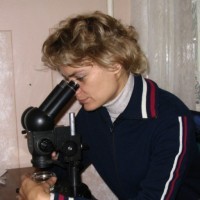
Dr Ilias Giannenas, DVM (2000), PhD (2004), DipECPVS (2014), Director of Laboratory of Nutrition (2018), is a veterinarian and associate Professor (2022) at the Veterinary Faculty of Aristotle University of Thessaloniki. Formerly he served as Lecturer in the Veterinary Faculty of University of Thessaly (2006-2011) and as a Lecturer (2012-2018) and assistant Professor in Aristotle University (2018-2022) . In 2017, he did sabbatical studies in Newcastle University to study further the interaction of dietary fibre and chicken coccidiosis. He is particularly interested in issues of applied poultry nutrition, the use of aromatic plants, plant extracts and essential oils as alternative growth promoters or natural anticoccidials. He is co-author of 5 books, 20 book chapters and 130 papers in refereed journals. He has been an invited speaker in many national or international Congresses or Conferences and he has presented more than 150 Conference papers. He has been scientific responsible or member of the research group in more than 50 research projects and has established collaboration with the industry in terms of feed and feed additives. He served as reviewer in several journals, member of the editorial board in 10 international journals and evaluator for several international projects. His work has more than 3500 citations and an h index of 40.
Layout Editor
Auto-generated board - Please Edit This Title

Dr. Mustafa Kemal Balki has been working as an academic staff at Sinop University in Turkey since 2006. After receiving his doctorate in 2013, he started working in the Mechanical Engineering Department of the Faculty of Engineering and Architecture. Balki, who received the title of Associate Professor in 2024, has academic studies on optimization in alternative fuels and internal combustion engines. He has also published books related to his field of study. Balki, who has ten years of management experience, currently works as the Vice Dean of the Faculty of Engineering and Architecture.


Müge Erel-Özçevik [S'13 M'19] is an Assoc. Prof. Dr. at the Software Engineering Department of Celal Bayar University, Turkey. She received her PhD, MSc, and BSc degrees in Computer Engineering from Istanbul Technical University, Turkey in 2019, 2015, and 2013 respectively. She graduated from BS with the second rank of honor in the faculty. She has graduated from PhD with 17 international journals and conference papers. She has received “Best Ph.D. Thesis of 2019” in Istanbul Technical University. She currently serves as reviewer in IEEE Transactions on Vehicular Technology (TVT), IEEE Transactions in Wireless Communications (TWC), The International Journal of Communication Systems (IJCS), 2014-present; and The International Journal of Computer and Telecommunications Networking (COMNET), 2015-present; IEEE Transaction on Communications, Ad Hoc networks, IEEE Communication Letters, IEEE Computer Communications (COMCOM), 2017-present. She is the recipient of IEEE CAMAD Best Paper Award (2016) and IEEE INFOCOM Best Poster Paper Award (2015). She has been involved in NFV-SDN 2017, VTC2017-Spring, ICNC ’16 GCNC, ICNC ’15 GCNC, VTC2015-Fall, EAHN-DCOSS 2014 as TCP Member. Her current research includes Software-Defined Networking (SDN), Ultra-Dense Networks (UDN), and Heterogeneous Networks (HetNets). She has also awarded with "Best Teaching Assistant" in Computer Engineering department for both 2015-2016 and 2016-2017 semesters according to votes of professors and students. Moreover, she had been supported by ASELSAN as Graduate Scholarship for Turkish Academicians between November 2016 and June 2019.

CEM CÜNEYT ERSANLI
CURRICULUM VITAE
PERSONAL DATA:
Work Address Department of Physics
Sinop University Faculty of Arts and Sciences
57000
Sinop, Turkey
Phone (+90) 368 271 55 16-4238,
(+90) 368 271 57 85-6670,
0533 252 50 64
e-Mail Address ccersanli@sinop.edu.tr; ccersanli@gmail.com;
Present Position Associate Professor Doctor
Department of Physics
Sinop University
Faculty of Arts and Sciences
Head of Physics Department
RESEARCH APPOINTMENTS:
Undergraduate Physics
Ondokuz Mayıs University
Faculty of Arts and Sciences
Department of Physics, 1994
Samsun, Turkey
M.Sc. Research Assistant, Department of Physics
Ondokuz Mayıs University, Institute of Science and Technology
Field: Atomic and Molecular Physics, 1997
Advisor: Recep TAPRAMAZ, Professor Doctor.
Thesis topic: “EPR investigation of some chemicals absorpted zeolites and of Cu2+ doped glycine.”
Ph.D. Research Assistant, Department of Physics
Ondokuz Mayıs University, Institute of Science and Technology
Field: Solid State Physics, 2004
Advisor: Ahmet ERDÖNMEZ, Professor Doctor.
Thesis topic: “The crystal structure determination of some organic and organometallic crystals.”
ACADEMIC APPOINTMENTS:
8/2017- present Professor Doctor
Department of Physics
Sinop University
Faculty of Arts and Sciences
Sinop, Turkey
3/2012- 8/2017 Associate Professor Doctor
Department of Physics
Sinop University
Faculty of Arts and Sciences
Sinop, Turkey
5/2007-3/2012 Assistant Professor Doctor
Department of Physics
Sinop University
Faculty of Arts and Sciences
Sinop, Turkey
3/2006-5/2007 Assistant Professor Doctor
Department of Physics
Ondokuz Mayıs University
Sinop Faculty of Arts and Sciences
Sinop, Turkey
9/1995-3/2006 Research Assistant, Department of Physics
Ondokuz Mayıs University, Faculty of Arts and Sciences
Samsun, Turkey
3/1995-9/1995 Research Assistant, Department of Physics
Ondokuz Mayıs University, Institute of Science and Technology
Samsun, Turkey
SPECIALIZATION AREA:
Crystallography; density functional theory with structure analysis (single crystal); theoretical calculation; spectroscopic methods (NMR, IR, UV).
ADMINISTRATIVE APPOINTMENTS:
2007-present Sinop University, Faculty of Arts and Sciences, Head of Physics Department
2007-present Sinop University, Faculty of Arts and Sciences, Faculty Board Membership
2023-2024 Sinop University, Faculty of Tourism, Dean
2023-2024 Sinop University, Faculty of Tourism, Faculty Board Membership
2020-2023 Sinop University, Rectorate, Member of Provincial Employment and Vocational
Education Board
2020-2023 Sinop University, Rectorate, Chairman of the Education Commission
2020-2023 Sinop University, Rectorate, Vice Rector
2020-2023 Sinop University, Rectorate, Chairman of the Academic Incentive Regulation,
Supervision and Appeals Commission
2020-2023 Sinop University Advisory Board Membership
2020-2023 Sinop University, Head of Distance Education Commission
2020-2023 Sinop University, School of Tourism and Hotel Management, Director
2020-2023 Sinop University, School of Tourism and Hospitality Management, Board
Membership
2020-2023 Sinop University, Scientific and Technological Researches Application and
Research Center Advisory Board Membership
2020-2023 Sinop University, Rectorate, Chairman of Bologna Coordination Commission
2020-2023 Sinop University, Institute of Graduate Studies, Quantum Systems Head of
Modeling Department
2007-2023 Sinop University, Scientific and Technological Researches Application and
Research Center Board Membership
2020-2021 Sinop University, Rectorate, Chairman of the Quality Commission
2020-2020 Sinop University, Institute of Graduate Studies, Director
2020-2020 Sinop University, Institute of Graduate Studies Board Membership
2019-2020 Sinop University, Boyabat Faculty of Economics and Administrative Sciences,
Dean
2019-2020 Sinop University, Boyabat Faculty of Economics and Administrative Sciences,
Faculty Member of the Board
2019-2019 Sinop University, Vocational School, Director
2019-2019 Sinop University, Vocational School, Board Membership
2018-2019 Sinop University, Boyabat Faculty of Economics and Administrative Sciences,
Faculty Member of the Board
2017-2019 Sinop University, Institute of Graduate Studies, Quantum Systems Head of
Modeling Department
2017-2019 Sinop University, Durağan Vocational School, Director
2017-2019 Sinop University, Durağan Vocational School, Board Membership
2017-2020 Sinop University, Faculty of Theology, Faculty Board Membership
2017-2020 Sinop University, Rectorate, Chairman of the Education Commission
2015-2016 Sinop University, Vocational School, Director
2015-2016 Sinop University, Vocational School, Board Membership
2015-2016 Sinop University, Türkeli Vocational School, Board Membership
2014-1015 Sinop University, Energy Research and Application Center (SÜENAR), Director
2009-2014 Sinop University, School of Tourism and Hospitality Management, Board
Membership
2009-2023 Sinop University Scientific and Technological Research and Application
Research Center (SUBİTAM), Board Membership
2007-2020 Sinop University, Institute of Science and Technology, Institute Board Member
2007-2011 Sinop University, Advisor to the Rector
2007-2011 Sinop University, Faculty of Arts and Sciences, Vice Dean
2006-2007 Ondokuz Mayıs University, Sinop Faculty of Arts and Sciences, Head of
Physics Department
MEMBERSHIP IN PROFESSIONAL ASSOCIATIONS:
National Association of Crystallography (2002-present)
PRIZES:
• Award for oral presentation titled “The Contribution of Nature to Mankind in the Energy Dimension - The Answer Given to Nature”, Canik Municipality, “VI. International Canik Symposium”, 2016.
• First Prize, Faculty of Arts and Sciences, Department of Physics, Ondokuz Mayıs University, 1994.
• Faculty of Arts and Sciences Faculty First Prize, Ondokuz Mayıs University, 1994.
MANAGED THESIS:
ÖZTÜRK SEFA, (2023). Investigation of the structural properties of some hydrazone derivative compounds by theoretical methods, Sinop University, Graduate School of Education, Interdisciplinary Quantum Systems Modeling Department (Completed).
GÜLER FATMA VİLDAN, (2019). Quantum mechanical modeling of some halogen-containing hydrazone compounds, Sinop University, Institute of Science and Technology, Interdisciplinary Quantum Systems Modeling Department (Completed).
MEMİK OSMAN UĞUR, (2018). Investigation of molecular properties of some Schiff base compounds by quantum mechanical methods, Sinop University, Graduate School of Science and Technology, Interdisciplinary Quantum Systems Modeling Department (Completed).
PUBLICATIONS:
Articles published in international refereed journals:
1. Elif Tezel Ersanlı, Cem Cüneyt Ersanlı (2023). Biomimicry: Journey to the Future with the Power of Nature, International Scientific and Vocational Journal (ISVOS Journal), 7(2), 149-160., Doi: 10.47897/bilmes.1388402.
2. Sefa ÖztÜrk, Tuğba Aycan, Zeynep Keleşoğlu, Cem Cüneyt Ersanlı (2023). Quantum Mechanical Calculations, Hirshfeld Surface Analysis, Molecular Docking, ADME and Toxicology Studies of Ethyl 4-chloro-2-[(4-nitrophenyl)hydrazono]-3-oxobutrate Compound, International Scientific and Vocational Journal (ISVOS Journal), 7(2), 109-121. Doi: 10.47897/bilmes.1385170.
3. Çakmak Şükriye, Keleşoğlu Zeynep, Uzun Serap, Veyisoğlu Aysel, Yakan Hasan, Ersanlı Cem Cüneyt (2022). Synthesis, X-ray structure, antimicrobial activity, DFT and molecular docking studies of N-(thiophen-2-ylmethyl)thiophene-2-carboxamide. International Union of Crystallography (IUCr), 78, 1-8., Doi: 10.1107/S2053229622006283.
4. Çakmak Şükriye, Kansız Sevgi, Azam Mohammad, Ersanlı Cem Cüneyt, İdil Önder, Veyisoğlu Aysel, Yakan Hasan, Kütük Halil, Chutia Arunabhiram (2022). Synthesis, Structural Investigation, Hirshfeld Surface Analysis, and Biological Evaluation of N-(3- Cyanothiophen-2-yl)-2-(thiophen-2-yl)acetamide. ACS Omega, 7(13), 11320-11329., Doi: 10.1021/acsomega.2c00318.
5. Çakmak Şükriye, Koşar Başak, Veyisoğlu Aysel, Yakan Hasan, Ersanlı Cem Cüneyt, Kütük Halil (2022). Experimental and theoretical investigations on a furan-2-carboxamide-bearing thiazole: synthesis, molecular characterization by IR/NMR/XRD, electronic characterization by DFT, Hirshfeld surface analysis and biological activity. Acta Crystallographica Section C Structural Chemistry, 78(3), 201-211., Doi: 10.1107/S2053229622002066.
6. Çakmak Osman, Ersanlı Cem Cüneyt, Berkil Akar Kıymet, Karaoğlan Nursel (2022). Structural, spectroscopic, Hirshfeld surface and DFT approach of 3,9-dibromophenanthrene. Organic Communications, 15(1), 59-70., Doi: 10.25135/acg.oc.119.2109.2213.
7. Soylu Özge, Atioğlu Zeliha, Akkurt Mehmet, Ersanlı Cem Cüneyt, Karalı Nilgün Lütfiye (2021). Molecular and crystal structure of 1-methyl5-trifluoromethoxy-1H-indole-2,3-dione 3-[4-(4-methoxyphenyl)thiosemicarbazone]. İstanbul Journal of Pharmacy, 51(1), 59-66., Doi: 10.26650/IstanbulJPharm.2020.0080.
8. Demircioğlu Zeynep, Albayrak Kaştaş Çiğdem, Kaştaş Gökhan, Ersanlı Cem Cüneyt (2021). Synthesis, crystal structure, computational chemistry studies and Hirshfeld surface analysis of two Schiff bases, (E)-2-[(4-bromo-2-methylphenylimino)methyl]-4-methylphenol and (E)-2-[(4-bromo-2-methylphenylimino)methyl]-6-methylphenol. Molecular Crystals and Liquid Crystals, Doi: 10.1080/15421406.2020.1871178.
9. Koşar Başak, Albayrak Kaştaş Çiğdem, Ersanlı Cem Cüneyt (2021). Molecular and electronic structures of two new Schiff base compounds: (E)-2-bromo-6-[(2-bromo-4- methylphenylimino)methyl]-4-chlorophenol and (E)-2-bromo-6-[(4-bromo-3-methylphenylimino) methyl]-4-chlorophenol. Journal of Molecular Structure, 1241(130643), 1-12., Doi: 10.1016/j.molstruc.2021.130643.
10. Ökten Salih, Demircioğlu Zeynep, Çakmak Osman, Ersanlı Cem Cüneyt (2021). Novel methoxyquinoline derivative: Synthesis, characterization, crystal structure, Hirshfeld surface, thermodynamic properties, and quantum chemical calculation of 3,6,8-trimethoxyquinoline. Molecular Crystals and Liquid Crystals, 714(1), 37-58., Doi: 10.1080/15421406.2020.1848260.
11. Çakmak Osman, Ökten Salih, Alımlı Dilek, Ersanlı Cem Cüneyt, Taslimi Parham, Koçyiğit Ümit Muhammet (2020). Novel piperazine and morpholine substituted quinolines: Selective synthesis through activation of 3,6,8-tribromoquinoline, characterization and their some metabolic enzymes inhibition potentials. Journal of Molecular Structure, 1220(128666), 1-12., Doi: 10.1016/j.molstruc.2020.128666.
12. Albayrak Kaştaş Çiğdem, Kaştaş Gökhan, Koşar Başak, Ersanlı Cem Cüneyt (2020). Molecular Structure and Supramolecular Architecture of (E)-2-Bromo-6-[(2,4,6- tribromophenylimino)methyl]-4-chlorophenol. Crystallography Reports, 65(7), 1106-1110., Doi: 10.1134/S1063774520070093.
13. Kaştaş Gökhan, Albayrak Kaştaş Çiğdem, Ersanlı Cem Cüneyt, Koşar Başak (2020). Investigation of the Molecular Structure of (E)-2-Bromo-6-[(4-bromo-2-methylphenylimino)methyl]-4-chlorophenol. Crystallography Reports, 65(3), 463-467.
14. Ekici Öner, Demircioğlu Zeynep, Ersanlı Cem Cüneyt, Çukurovalı Alaaddin (2020). Experimental and theoretical approach: Chemical activity, charge transfer of DNA/ECT, thermodinamic, spectroscopic, structural and electronic properties of N-(4-(3-methyl-3- phenylcyclobutyl)thiazol-2-yl)acetamide molecule. Journal of Molecular Structure, 1204, 1-12., Doi: 10.1016/j.molstruc.2019.127513.
15. Kaştaş Gökhan, Albayrak Kaştaş Çiğdem, Koşar Başak, Ersanlı Cem Cüneyt (2020). The effect of the change in substituents’ positions on the formation of supramolecular networks and the solvent type/substituent dependence of prototropic behavior in three new o-hydroxy Schiff bases. Journal of Molecular Structure, 1200, 1-13., Doi: 10.1016/j.molstruc.2019.127109.
16. Demircioğlu Zeynep, Ersanlı Cem Cüneyt, Alpaslan Gökhan (2019). Local and Global Chemical Activity Calculations of (Z)-Ethyl 4-chloro-2-[2-(2-methyloxyphenyl)hydrazone]-3-oxo-butanoate Crystal by Computational Chemistry and Determination of Charge Transfer with DNA Bases. Sinop University Journal of Natural Sciences, 4(2), 93-108.
17. Demircioğlu Zeynep, Ersanlı Cem Cüneyt, Kaya Kantar Günay, Şaşmaz Selami (2019). Spectroscopic, Hirshfeld surface, X-ray diffraction methodologies and local global chemical activity calculations of 5-(2-methoxy-4-(prop-1-en-1-yl)phenoxy)pyrazine-2,3-dicarbonitrile. Journal of Molecular Structure, 1181, 25-37., Doi: 10.1016/j.molstruc.2018.12.072.
18. Ökten Salih, Ersanlı Cem Cüneyt, Çakmak Osman (2018). Structural Characterization of 6- Bromo-5-nitroquinoline-1-oxide: A Quantum Chemical Study and XRD Investigations. Cumhuriyet Science Journal, 39(4), 940-953., Doi: 10.17776/csj.424045.
19. Çakmak Osman, Ökten Salih, Alımlı Dilek, Saddıqa Aisha, Ersanlı Cem Cüneyt (2018). Activation of 6-bromoquinoline by nitration: synthesis of morpholinyl and piperazinyl quinolines. Arkivoc, 2018(3), 362-374., Doi: 10.24820/ark.5550190.p010.374.
20. Akkoç Senem, Yavuz Sevtap Çağlar, Akkurt Mehmet, Ersanlı Cem Cüneyt (2018). Density functional theory study of a silver Nheterocyclic carbene complex. Journal of the Chinese Advanced Materials Society, 6(2), 112-122., Doi: doi.org/10.1080/22243682.2018.1425906.
21. Ersanlı Cem Cüneyt, Kaya Kantar Günay, Demircioğlu Zeynep, Şaşmaz Selami (2018). 4-(2-Methoxy-4-(prop-1-enyl)phenoxy)phthalonitrile; synthesis, characterization, Hirshfeld surface analysis and chemical activity studies. Molecular Crystals and Liquid Crystals, 667(1), 88-111., Doi: 10.1080/15421406.2018.1528417.
22. Ersanlı Cem Cüneyt, Koşar Başak, Albayrak Kaştaş Çiğdem (2017). Synthesis, X-ray and Quantum Chemical Characterizations Studies on (E)-2-Bromo-4-chloro-6-[(4-chloro-2,5- dimethoxyphenylimino)methyl]phenol Compound. Gazi University Journal of Science, 30(4), 531-543.
23. Ersanlı Cem Cüneyt, Kaya Kantar Günay, Şaşmaz Selami (2017). Crystallographic, spectroscopic (FTIR and NMR) and quantum computational calculation studies on bis(2-methoxy-4-((E)-prop-1-enyl)phenyl)oxalate. Journal of Molecular Structure, 1143, 318-327., Doi: 10.1016/j.molstruc.2017.04.032.
24. Çelik İsmail, Akkurt Mehmet, Ökten Salih, Çakmak Osman, Ersanlı Cem Cüneyt (2017). 6-Bromoquinoline-8-carbonitrile. IUCrData, 2(7), 1-3., Doi: 10.1107/S2414314617009300.
25. Çelik İsmail, Akkurt Mehmet, Ekiz Makbule, Ökten Salih, Tutar Ahmet, Ersanlı Cem Cüneyt (2017). 9-Amino-5,7-dibromo-1,2,3,4-tetrahydroacridine hemihydrate. IUCrData, 2(7), 1-3., Doi: 10.1107/S2414314617010112.
26. Çelik İsmail, Akkurt Mehmet, Ekiz Makbule, Tutar Ahmet, Ökten Salih, Ersanlı Cem Cüneyt (2017). 11-[Bis(trimethylsilyl)amino]-2,4-bis(trimethylsilyl)-7,8,9,10-tetrahydro-6H-cyclohepta[1,2-b]quinoline. IUCrData, 2(6), 1-3., Doi: 10.1107/S2414314617008884.
27. Atioğlu Zeliha, Şeyma Sevinçli Zekiye, Karalı Nilgün Lütfiye, Akkurt Mehmet, Ersanlı Cem Cüneyt (2017). (2Z)-2-(5-Fluoro-1-methyl-2-oxoindolin-3-ylidene)-N-(3-fluorophenyl)hydrazine-1-carbothioamide. IUCrData, 2(6), Doi: 10.1107/S2414314617009002.
28. Çelik İsmail, Ökten Salih, Akkurt Mehmet, Ersanlı Cem Cüneyt, Çakmak Osman, Özbakır Rana (2017). 5,7-Dibromo-8-methoxyquinoline. IUCrData, 2(5), 1-3., Doi: 10.1107/S2414314617006435.
29. Atioğlu Zeliha, Sevinçli Zekiye Şeyma, Karalı Nilgün Lütfiye, Akkurt Mehmet, Ersanlı Cem Cüneyt (2017). 2-(5-Fluoro-1-methyl-2-oxoindolin-3-ylidene)-N-[4-(methylsulfanyl)phenyl] hydrazine-1-carbothioamide. IUCrData, 2(5), 1-3., Doi: 10.1107/S241431461700671X.
30. Rad Javad Amerı, Jarrahpour Alıasghar, Ersanlı Cem Cüneyt, Atioğlu Zeliha, Akkurt Mehmet, Turos Edward (2017). Synthesis of some novel indeno[1,2-b]quinoxalin spiro-β-lactam conjugates. Tetrahedron, 73(8), 1135-1142., Doi: 10.1016/j.tet.2017.01.009.
31. Atioğlu Zeliha, Akkurt Mehmet, Başoğlu Faika, Ulusoy Güzeldemirci Nuray, Köseoğlu Rahmi, Ersanlı Cem Cüneyt (2017). (Z)-N’-(3-Ethyl-4-oxothiazolidin-2-ylidene)-2-[6-(4- methoxyphenyl)imidazo[2,1-b]thiazol-3-yl]acetohydrazide. IUCrData, 2(x170040), 1-3., Doi: 10.1107/S2414314617000402.
32. Çelik İsmail, Ökten Salih, Ersanlı Cem Cüneyt, Akkurt Mehmet, Çakmak Osman (2016). 6 Bromo 1 2 3 4 tetrahydroquinoline 8 carbonitrile. IUCrData, 1(11), 1-6., Doi: 10.1107/S241431461601854X.
33. Çelik İsmail, Ersanlı Cem Cüneyt, Köseoğlu Rahmi, Akşit Hüseyin, Erenler Ramazan, Demirtaş İbrahim, Akkurt Mehmet (2016). Crystal structure of 3, 4a, 7, 7, 10a-pentamethyl-3-vinyldodecahydro-1H-benzo[f]chromen-9-ol isolated from Sideritis perfoliata Acta Crystallographica Section E Crystallographic Communications, 72(10), 1380-1382., Doi: 10.1107/S2056989016013864.
34. Çelik İsmail, Ersanlı Cem Cüneyt, Akkurt Mehmet, Akşit Hüseyin, Erenler Ramazan (2016). Synthesis Crystal Structure and Theoretical Characterization of (3R, 4R, 6S)-3, 6- dihydroxy-1-menthene Isolated from Echinophora tenuifolia. Gazi University Journal of Science, 29(4), 953-957.
35. Çelik İsmail, Ersanlı Cem Cüneyt, Akkurt Mehmet, Gezegen Hayreddin, Köseoğlu Rahmi (2016). Crystal structure of racemic [(1R, 2S, 3R, 4S, 6S)-2, 6-bis(furan-2-yl)-4-hy droxy-4-thiophen-2-yl)cyclohexane-1 3-diyl] bis(thiophen-2-ylmethanone). Acta Crystallographica Section E Crystallographic Communications, 72(7), 976-979., Doi: 10.1107/S2056989016009452.
36. Abdullah M Asiri, Ersanlı Cem Cüneyt, Şahin Onur, Arshad Muhammad Nadeem, Hameed Salem A (2016). Molecular structure spectroscopic and quantum chemical studies of 1’, 3’, 3’- trimethylspirobenzo[f]chromene-3,2’-indoline. Journal of Molecular Structure, 1111, 108-117., Doi: 10.1016/j.molstruc.2016.01.086.
37. A Kahan Salman, Y Obaid Abdullah, M Alharbi Laila, Arshad Muhammad Nadeem, Şahin Onur, Ersanlı Cem Cüneyt, RM Abdel Rehman, Abdullah M Asiri, Michael B Hursthouse (2015). Synthesis spectroscopic UV vis and GIAO NMR crystallographic and theoretical studies of triazine heterocyclic derivatives. Journal of Molecular Structure, 1096, 29-37., Doi: 10.1016/j.molstruc.2015.04.036.
38. Padmanabha S Manjula, Sarojini Balladka K, Hemmige S Yathirajan, Akkurt Mehmet, Ersanlı Cem Cüneyt, Glidewell Christopher (2015). The crystal structures of three 3-methyl-1H-1,2,4 triazole-5-thiones, including a second polymorph of 4-[(E)-(5-bromo-2-hydroxybenzylidene)amino]-3-methyl-1H-1,2,4-triazole-5(4H)-thione and a redetermination of 4-amino-3-methyl-1H-1,2,4-triazole-5(4H)-thione. Acta Crystallographica Section E Crystallographic Communications, 71(9), 1003-1009., Doi: 10.1107/S205698901501422X.
39. Subbulakshmi Karanth N, Narayana Badiadka, Yathirajan Hemmige S, Akkurt Mehmet, Çelik Ömer, Ersanlı Cem Cüneyt, Glidewell Christopher (2015). Dihydrooxazolones and dihydroimidazolones derived from acylglycines syntheses molecular structures and supramolecular assembly. Acta Crystallographica Section C Structural Chemistry, 71(8), 742-751., Doi: 10.1107/S2053229615013637.
40. Vinutha V Salian, Badiadka Narayana, Hemmige S Yathirajan, Akkurt Mehmet, Çelik Ömer, Ersanlı Cem Cüneyt, Christopher Glidewell (2015). A chalcone showing positional disorder two related diarylcyclohexenones showing enantiomeric disorder and a related hydroxyterphenyl all derived from simple carbonyl precursors. Acta Crystallographica Section C Structural Chemistry, 71(7), 610-617., Doi: 10.1107/S2053229615011961.
41. Koşar Başak, Albayrak Çiğdem, Ersanlı Cem Cüneyt, Mustafa Odabaşoğlu, Orhan Büyükgüngör (2012). Molecular structure spectroscopic investigations second order nonlinear optical properties and intramolecular proton transfer of (E)-5-(diethylamino)-2-[(4- propylphenylimino)methyl]phenol: A combined experimental and theoretical study. Spectrochimica Acta Part A- Molecular and Biomolecular Spectroscopy, 93(93), 1-9.
42. Çelik İsmail, Ersanlı Cem Cüneyt, Akkurt Mehmet, Daştan Arif, Garcia-Granda Santiago (2007). Crystal Structure of (1RS, 2SR, 3SR ,4SR, 9RS)-1,2,3,9-tetrabromo-1,2,3,4-tetrahydro- 1,4-methanonaphthalene. The Japan Society for Analytical Chemistry, 23(23), 133-135., Doi: DOI:10.2116/analscix.23.x133.
43. Çelik İsmail, Ersanlı Cem Cüneyt, Akkurt Mehmet, Demirtaş İbrahim (2007). Crystal and Molecular Structure of N-Trityl-m-aminophenol Chloroform Solvate. The Japan Society for Analytical Chemistry, 23(23), 231-232.
44. Heren Zerrin, Keser Cem, Ersanlı Cem Cüneyt, Zafer Yeşilel Okan, Ocak İskeleli Nazan (2006). Synthesis Spectral and Thermal Studies and Crystal Structure of cis-Bis(4- methylimidazole)bis(picolinato)copper(II) [Cu(pic)2(4-MeIm)2]. Zeitschrift Fur Naturforschung Section B-A Journal of Chemical Sciences, 61(10), 1217-1221.
45. Çelik İsmail, Akkurt Mehmet, Erenler Ramazan, Çakmak Osman, Ersanlı Cem Cüneyt (2006). trans,trans,trans-1,4-Dimethoxy-2,3,5,8-tetrabromotetralin. Acta Crystallographica Section E Structure Reports Online, 62(10), 4609-4610., Doi: 10.1107/S1600536806037949.
46. Heren Zerrin, Keser Cem, Ersanlı Cem Cüneyt, Yeşilel Okan Zafer, Büyükgüngör Orhan (2006). Synthesis Spectral and Thermal Studies and Crystal Structure of cis-Bis(imidazole)bis(picolinato)copper(II) Dihydrate[Cu(pic)2(im)2].2H2O. Zeitschrift Fur Naturforschung Section B-A Journal of Chemical Sciences, 61(9), 1072-1078.
47. Çelik İsmail, Ersanlı Cem Cüneyt, Akkurt Mehmet, Daştan Arif, Garcia-Granda Santiago (2006). (1RS, 2RS, 3SR, 4SR, 9RS)-1,2,3,9-Tetrabromo-1,2,3,4-tetrahydro-1,4-methanonaphthalene. Acta Crystallographica Section E Structure Reports Online, 62(8), 3483-3485., Doi: 10.1107/S1600536806027723.
48. Ersanlı Cem Cüneyt, Albayrak Kaştaş Çiğdem, Odabaşoğlu Mustafa, Büyükgüngör Orhan (2006). (Z)-6-{[1,3-Dihydroxy-2-(hydroxymethyl)propan-2-ylamino]methylene}-2- methoxy-4-[(E)-o-tolyldiazenyl]cyclohexa-2,4-dienone. Acta Crystallographica Section C Crystal Structure Communications, 62(8), 483-485., Doi: 10.1107/S010827010602052X.
49. Alpaslan Gökhan, Özdamar Özgür, Odabaşoğlu Mustafa, Ersanlı Cem Cüneyt, Erdönmez Ahmet (2006). (Z)-Ethyl 4-chloro-3-oxo-2-(2-o-tolylhydrazono)butanoate. Acta Crystallographica Section E Structure Reports Online, 62(5), 1828-1830., Doi: 10.1107/S1600536806012670.
50. Heren Zerrin, Ersanlı Cem Cüneyt, Keser Cem, Ocak İskeleli Nazan (2006). Redetermination of trans-diaquabis(picolinato-κ2N,O)cobalt(II) dihydrate. Acta Crystallographica Section E Structure Reports Online, 62(4), 796-798., Doi: 10.1107/S1600536806009081.
51. Ersanlı Cem Cüneyt, Albayrak Kaştaş Çiğdem, Odabaşoğlu Mustafa, Büyükgüngör Orhan (2005). (Z)-4-[(E)-(4-Butylphenyl)diazenyl]-6-{[1,3-dihydroxy-2-(hydroxymethyl)propan-2-ylamino]methylene}-2-methoxycyclohexa-2,4-dienone. Acta Crystallographica Section E Structure Reports Online, 61(12), 4139-4141., Doi: 10.1107/S1600536805037177.
52. Ersanlı Cem Cüneyt, Albayrak Kaştaş Çiğdem, Odabaşoğlu Mustafa, Kazak Canan (2005). (Z)-6-{[1,3-Dihydroxy-2-(hydroxymethyl)propan-2-ylamino]methylene}-2-methoxy-4-{(E)- [3-(trifluoromethyl)phenyl]diazenyl}cyclohexa-2,4-dienone. Acta Crystallographica Section E Structure Reports Online, 61(12), 4051-4053., Doi: 10.1107/S1600536805035415.
53. Alpaslan Gökhan, Özdamar Özgür, Odabaşoğlu Mustafa, Ersanlı Cem Cüneyt, Erdönmez Ahmet, Ocak İskeleli Nazan (2005). (Z)-Ethyl 4-chloro-2-[2-(2-chlorophenyl)hydrazono]-3-oxobutanoate. Acta Crystallographica Section E Structure Reports Online, 61(11), 3648-3650., Doi: 10.1107/S1600536805032022.
54. Alpaslan Gökhan, Özdamar Özgür, Odabaşoğlu Mustafa, Ersanlı Cem Cüneyt, Erdönmez Ahmet, Ocak İskeleli Nazan (2005). (Z)-Ethyl 4-chloro-2-[2-(2-methoxyphenyl)hydrazono]-3-oxobutanoate. Acta Crystallographica Section E Structure Reports Online, 61(10), 3442-3444., Doi: 10.1107/S1600536805030163.
55. Alpaslan Gökhan, Özdamar Özgür, Odabaşoğlu Mustafa, Ersanlı Cem Cüneyt, Büyükgüngör Orhan, Erdönmez Ahmet (2005). (E) Ethyl 4-chloro-3-[2-(2-fluorophenyl)hydrazono]butanoate. Acta Crystallographica Section E Structure Reports Online, 61(9), 2823-2825., Doi: 10.1107/S1600536805024153.
56. Alpaslan Gökhan, Özdamar Özgür, Odabaşoğlu Mustafa, Ersanlı Cem Cüneyt, Büyükgüngör Orhan, Erdönmez Ahmet (2005). Ethyl 4-chloro-3-oxo-2-(phenylhydrazono)butyrate. Acta Crystallographica Section E Structure Reports Online, 61(8), 2428-2430., Doi: 10.1107/S1600536805021240.
57. Turgut Cin Günseli, Zora Metin, Odabaşoğlu Mustafa, Ersanlı Cem Cüneyt, Büyükgüngör Orhan (2005). (2-Hydroxyethyl)hydrazinium(2+) dichloride. Acta Crystallographica Section C Crystal Structure Communications, 61(5), 321-323., Doi: 10.1107/S0108270105007183.
58. Ersanlı Cem Cüneyt, Odabaşoğlu Mustafa, Sarı Uğur, Erdönmez Ahmet (2005). N-Cinnamoylsaccharin. Acta Crystallographica Section C Crystal Structure Communications, 61(4), 243-245., Doi: 10.1107/S0108270105005160.
59. Akkurt Mehmet, Çelik İsmail, Berkil Akar Kıymet, Tutar Ahmet, Ersanlı Cem Cüneyt, Çakmak Osman, Büyükgüngör Orhan (2005). (1RS,2SR)-1,2,4,5,7-Pentabromo-5-methoxyindane. Acta Crystallographica Section E Structure Reports Online, 61(2), 475-477., Doi: 10.1107/S160053680500111X.
60. Ersanlı Cem Cüneyt, Çoruh Ufuk, Hökelek Tuncer, Vázquez-López E. M., Daştan Arif (2005). (±)-(1SR, 8RS, 10RS)-9,9,10-Tribromotricyclo[6.2.1.02,7]undeca-2,4,6-triene. Acta Crystallographica Section E Structure Reports Online, 61(2), 263-265., Doi: 10.1107/S1600536805000255.
61. Akkurt Mehmet, Çelik İsmail, Erenler Ramazan, Çakmak Osman, Ersanlı Cem Cüneyt, Büyükgüngör Orhan (2004). trans,trans,trans-2,3,5,8-Tetrabromo-1,4-dihydroxy-1,2,3,4- tetrahydronaphthalene. Acta Crystallographica Section E Structure Reports Online, 60(11), 2096- 2098., Doi: 10.1107/S1600536804026042.
62. Ersanlı Cem Cüneyt, Albayrak Kaştaş Çiğdem, Odabaşoğlu Mustafa, Kazak Canan, Erdönmez Ahmet (2004). 3-Methoxy-5-(4-methylphenyldiazenyl)salicylaldehyde and 3-methoxy-5-(2-methylphenyldiazenyl)salicylaldehyde. Acta Crystallographica Section C Crystal Structure Communications, 60(6), 455-457., Doi: 10.1107/S0108270104010844.
63. Ersanlı Cem Cüneyt, Çoruh Ufuk, Hökelek Tuncer, Vázquez-López E. M., Daştan Arif, Erdönmez Ahmet (2004). (1RS, 8SR, 9RS, 10RS, 11RS, 12RS)-10,11-Dibromotetracyclo[6.4.2.02,7.09,12]tetradeca-2,4,6,13-tetraene. Acta Crystallographica Section E Structure Reports Online, 60(4), 703-705., Doi: 10.1107/S1600536804007305.
64. Ersanlı Cem Cüneyt, Albayrak Çiğdem, Odabaşoğlu Mustafa, Erdönmez Ahmet (2004). 4-(2-Hydroxyphenyliminomethylene)phenol. Acta Crystallographica Section E Structure Reports Online, 60(3), 389-391., Doi: 10.1107/S1600536804003319.
65. Ersanlı Cem Cüneyt, Odabaşoğlu Mustafa, Albayrak Çiğdem, Büyükgüngör Orhan, Erdönmez Ahmet (2004). 4-Acetylanilinium chloride monohydrate. Acta Crystallographica Section E Structure Reports Online, 60(3), 397-398., Doi: 10.1107/S1600536804002569.
66. Çelik İsmail, Çakmak Osman, Akkurt Mehmet, Ersanlı Cem Cüneyt, Büyükgüngör Orhan (2004). 2,3,-exo,exo-5,6-Tetrabromobicyclo[2.2.1]hept-2-ene. Acta Crystallographica Section E Structure Reports Online, 60(3), 468-470., Doi: 10.1107/S1600536804004131.
67. Ersanlı Cem Cüneyt, Odabaşoğlu Mustafa, Çiğdem Albayrak, Thöne Carsten, Erdönmez Ahmet (2004). 4-[(2-Chlorophenyl)diazenyl]-6-methoxy-2-{[tris(hydroxymethyl)methyl] aminomethylene} cyclohexa 3,5-dien-1(2H)-one. Acta Crystallograpica Section C-Crystal Structure Communications, 60(2), 133-135.
68. Ersanlı Cem Cüneyt, Odabaşoğlu Mustafa, Albayrak Çiğdem, Erdönmez Ahmet (2004). 6-Methoxy-5-(phenyldiazenyl)salicylaldehyde. Acta Crystallographica Section E Structure Reports Online, 60(2), 230-231., Doi: 10.1107/S1600536804000819.
69. Ersanlı Cem Cüneyt, Odabaşoğlu Mustafa, Albayrak Kaştaş Çiğdem, Erdönmez Ahmet (2004). 2-[2-(Hydroxymethyl)phenyliminomethyl]phenol. Acta Crystallographica Section E Structure Reports Online, 60(2), 264-266., Doi: 10.1107/S1600536804001321.
70. Ersanlı Cem Cüneyt, Dündar Yasemin, Sarı Uğur, Noyanalpan Ningur, Odabaşoğlu Mustafa, Erdönmez Ahmet (2003). Methyl 3-(2-oxobenzothiazolin-3-yl)propanoate. Acta Crystallographica Section E Structure Reports Online, 59(11), 1604-1606., Doi: 10.1107/S1600536803021147.
71. Ersanlı Cem Cüneyt, Albayrak Kaştaş Çiğdem, Odabaşoğlu Mustafa, Erdönmez Ahmet (2003). 2-[(2-Hydroxy-4-nitrophenyl)aminomethylene]cyclohexa-3,5-dien-1(2H)-one. Acta Crystallographica Section C Crystal Structure Communications, 59(10), 601-602., Doi: 10.1107/S0108270103018456.
72. Necefoğlu Hacali, Hökelek Tuncer, Ersanlı Cem Cüneyt, Erdönmez Ahmet (2002). Bis(4-hydroxybenzoato-κO)bis(nicotinamide-κN)zinc(II). Acta Crystallographica Section E Structure Reports Online, 58(12), 758-761., Doi: 10.1107/S1600536802021712.
Presented at international scientific meetings, and published (Proceedings) published papers:
1. Faizi Md. Serajul Haque, Ersanlı Cem Cüneyt, Dege Necmi (2020). DFT Study on Structural Properties and Energy of Isoquinolin-1(2H)-one. V. International Scientific and Vocational Studies Congress-Science and Health (BILMES SH 2020, Turkey), 1(1) (Abstract Paper/Oral Presentation).
2. Ayed Brahim, Ersanlı Cem Cüneyt, Dege Necmi (2020). Hirshfeld Surface Analysis of 4-Nitroaniline. V. International Scientific and Vocational Studies Congress-Science and Health (BILMES SH 2020, Turkey), 1(1) (Abstract Paper/Oral Presentation).
3. Rasha Rawajfeh, Ersanlı Cem Cüneyt, Dege Necmi (2019). A Redetermination of the Crystal Structure of (Acetato-κ2O,O’)(Di-2-Pyridylamine-κN)(Acetato-κO)Zinc(II). IV. International scientific and Vocational Studies Congress-Science and Health (BILMES SH 2019 – Ankara, Turkey), 1(1), 54-58. (Full Text Paper/Oral Presentation).
4. Md Serajul Haque Faizi, Ersanlı Cem Cüneyt, Dege Necmi (2019). Isoquinolin-1(2H)-one: A Redetermination. IV. Internationalscientific and Vocational Studies Congress-Science and Health (BILMES SH 2019 - Ankara, Turkey), 1(1), 49-53. (Full Text Paper/Oral Presentation).
5. Karrouchi Khalid, Ersanlı Cem Cüneyt, Dege Necmi (2019). (E)-N’-(2,4-Dihydroxybenzylidene)isonicotinohydrazide Monohydrate: A Redetermination of Its Synthesis and X-Ray Crystal Structure. IV. International Scientific and Vocational Studies Congress- Science and Health (BILMES SH 2019-Ankara, Turkey), 1(1), 44-48. (Full Text Paper/Oral Presentation).
6. Albayati Mustafa R, Ersanlı Cem Cüneyt, Dege Necmi (2019). Computational Density Functional Theory Study of (1e,2e)-1,2-Bis(1-(4-Chlorophenyl) Ethylidene) Hydrazine. III. International Scientific and Vocational Studies Congress-Science and Health (BILMES SH 2019), 142-146. (Full Text Paper/Oral Presentation).
7. Demircioğlu Zeynep, Ersanlı Cem Cüneyt (2019). Electrophilicity-Based Charge Transfer (ECT) Method with DNA Bases. 8th International Vocational Schools Symposium, 1, 123-126. (Full Text Paper/Oral Presentation).
8. Ayed Brahim, Ersanlı Cem Cüneyt, Dege Necmi (2019). DNA/ECT Charge Transfer and Chemical Activity of 4-Nitroaniline Compound with DFT. I. International Science and Innovation Congress (INSI 2019), 24 (Abstract Paper/Oral Presentation).
9. Boukabcha Nourdine, Dege Necmi, Ersanlı Cem Cüneyt (2019). X-Ray Diffraction Crystallographic Characterization of Compound 3,3’-Bis(2-Ethoxyphenyl)-4-Methyl- 2’-Thioxo-[2,5’xx-Bithiazolidin]-4’One. International Scientific and Vocational Studies Congress-Science and Health (BILMES SH 2019), 158-162. (Full Text Paper/Oral Presentation).
10. Ersanlı Cem Cüneyt, Tezel Ersanlı Elif (2019). Renewable Energy for A Secure Future. International Scientific and Vocational Studies Congress-Science and Health (BILMES SH 2019), 8 (Abstract Paper/Oral Presentation).
11. Ayed Brahim, Dege Necmi, Ersanlı Cem Cüneyt (2019). Geometrical and HOMO/LUMO/MEP Analyses by Using DFT/B3LYP Method: 4-Nitroaniline. International Scientific and Vocational Studies Congress-Science and Health (BILMES SH 2019), 30-34. (Full Text Paper/Oral Presentation).
12. Obasi Lawrence Nnamdi, Ersanlı Cem Cüneyt, Dege Necmi (2019). Quantum Chemical Calculations of (E)-4-[(Furan-2-ylmethylene)amino]-1,5-dimethyl-2-phenyl-1H-pyrazol- 3(2H)-one. International Scientific and Vocational Studies Congress-Science and Health (BILMES SH 2019), 130-135. (Full Text Paper/Oral Presentation).
13. Obasi Lawrence Nnamdi, Ersanlı Cem Cüneyt, Dege Necmi (2019). Density Functional Theory Computations of (E)-4-((furan-2-ylmethylene)amino)-1,5-dimethyl-2-phenyl-1H-pyrazol-3(2H)-one. 8th International Vocational Schools Symposium, 2, 169-175. (Full Text Paper/Oral Presentation).
14. Demircioğlu Zeynep, Ersanlı Cem Cüneyt (2019). Hirshfeld Surface Analysis of Di(pyridin-2- yl)amine. 8th International Vocational Schools Symposium, 2, 274-278. (Full Text Paper/Oral Presentation).
15. Güler Fatma Vildan, Demircioğlu Zeynep, Ersanlı Cem Cüneyt (2019). Quantum Chemical Calculations of (Z)-Ethyl 4-chloro-2-[2-(2-chlorophenyl)hydrazono]-3-oxobutanoate. 8th International Vocational Schools Symposium, 2 (Full Text Paper/Oral Presentation).
16. Güler Fatma Vildan, Demircioğlu Zeynep, Ersanlı Cem Cüneyt (2019). Quantum Chemical Calculations of (Z)-Ethyl 2-[2-(3-bromophenyl)hydrazono]-4-chloro-3-oxobutanoate. 8th International Vocational Schools Symposium, 2, 218-226. (Full Text Paper/Oral Presentation).
17. Güler Fatma Vildan, Demircioğlu Zeynep, Ersanlı Cem Cüneyt (2019). DFT Study on Structural Properties and Energy of (E)-Ethyl 4-chloro-3-[2-(2-fluorophenyl)hydrazone]butanoate. 8th International Vocational Schools Symposium, 2, 227-232. (Full Text Paper/Oral Presentation).
18. Demircioğlu Zeynep, Ersanlı Cem Cüneyt (2019). Chemical Activity Analysis with Computational Chemical Method. 8th International Vocational Schools Symposium, 1, 115-122. (Full Text Paper/Oral Presentation).
19. Demircioğlu Zeynep, Ersanlı Cem Cüneyt (2019). Hirshfeld Surface Analysis of Compounds Containing Hydrazone Derivatives. 8th International Vocational Schools Symposium, 2, 233-238. (Full Text Paper/Oral Presentation).
20. Demircioğlu Zeynep, Ersanlı Cem Cüneyt (2019). 2D-Fingerprint Plots and Surface Maps with Hirshfeld Surface Analysis. 6th International Multidisciplinary Studies Congress, 109-115. (Full Text Paper/Oral Presentation).
21. Demircioğlu Zeynep, Büyükgüngör Orhan, Ersanlı Cem Cüneyt (2018). Intermolecular Interactions and Fingerprint Plots withHirshfeld Surface Analysis. 2nd International Symposium on Innovative Approaches in Scientific Studies (ISAS 2018) (Full Text Paper/Oral Presentation).
22. Demircioğlu Zeynep, Büyükgüngör Orhan, Ersanlı Cem Cüneyt (2018). Chemical Activity Studies with Density Functional Theory. 2nd International Symposium on Innovative Approaches in Scientific Studies (ISAS 2018) (Full Text Paper/Oral Presentation).
23. Demircioğlu Zeynep, Ersanlı Cem Cüneyt (2018). Local Global Chemical Activity Studies: Electrophilic/Nucleophilic Nature. International Computational Science Congress (CSC 2018) (Full Text Paper/Oral Presentation).
24. Demircioğlu Zeynep, Büyükgüngör Orhan, Ersanlı Cem Cüneyt (2018). Hirshfeld Surface Analysis. International Computational Science Congress (CSC 2018) (Full Text Paper/Oral Presentation).
25. Demircioğlu Zeynep, Ersanlı Cem Cüneyt (2018). Density Functional Theory Computations: Chemical Activity Analysis with Electrophilic and Nucleophilic Nature. International Congress on the World of Technology and Advanced Materials (WITAM-2018) (Full Text Paper/Oral Presentation).
26. Demircioğlu Zeynep, Büyükgüngör Orhan, Ersanlı Cem Cüneyt (2018). Hirshfeld Surface Analysis and Chemical Computational Methods for the Characterization of Schiff Bases. International Congress on the World of Technology and Advanced Materials (WITAM-2018) (Full Text Paper/Oral Presentation).
27. Ersanlı Cem Cüneyt, Memik Osman Uğur, Demircioğlu Zeynep (2018). HF Study on Structural Properties, Energy and Hirshfeld Surface Analysis of (Z)-6-{[1,3-Dihydroxy-2- (hydroxymethyl)propan-2-ylamino]methylene}-2-methoxy-4-{(E)-[3-(trifluoromethyl)phenyl] diazenyl} cyclohexa-2,4-dienone Compound. II. International Congress on New Trends in Science, Engineering and Technology (ICONTRENDS 2018) (Full Text Paper/Oral Presentation).
28. Ersanlı Cem Cüneyt, Memik Osman Uğur, Demircioğlu Zeynep (2018). Theoretical Characterization of 4-(2-Hydroxyphenyliminomethylene)phenol Compound by Hartree-Fock Method. II. International Congress on New Trends in Science, Engineering and Technology (ICONTRENDS 2018) (Full Text Paper/Oral Presentation).
29. Ersanlı Cem Cüneyt, Memik Osman Uğur, Demircioğlu Zeynep (2018). Molecular and Electronic Properties of 4-[(2-Chlorophenyl)diazenyl]-6-methoxy-2-{[tris(hydroxymethyl) methyl]aminomethylene}cyclohexa-3,5-dien-1(2H)-one Compound By Using Hartree-Fock Method. IV. International Multidisciplinary Congress of Eurasia (Full Text Paper/Oral Presentation).
30. Ersanlı Cem Cüneyt, Çakır Yusuf, Güler Fatma Vildan, Bayrak Rıza, Demircioğlu Zeynep (2018). DFT Computational Investigations on 4-(3-(3-Phenyl-5-thioxo-4-p-tolyl-4,5-dihydro-1H-1,2,4-triazol-1-yl)phthalonitrile. II. International Scientific and Vocational Studies Congress, (BILMES 2018) (Full Text Paper/Oral Presentation).
31. Ersanlı Cem Cüneyt, Güler Fatma Vildan, Alpaslan Gökhan, Demircioğlu Zeynep (2018). Investigations of the (E)-Ethyl 4-chloro-3-[2-(2-fluorophenyl)hydrazono] butanoate compound by Quantum Chemical Methods. II. International Scientific and Vocational Studies Congress, (BILMES 2018) (Full Text Paper/Oral Presentation).
32. Demircioğlu Zeynep, Büyükgüngör Orhan, Ersanlı Cem Cüneyt (2018). Local and Global Chemical Calculations with Computational Chemistry Method. 2nd International Congress on Multidisciplinary Studies (Abstract Paper/Oral Presentation).
33. Demircioğlu Zeynep, Büyükgüngör Orhan, Ersanlı Cem Cüneyt (2018). Non-linear Optical (NLO) and Chemical Activity Calculations with DFT. 1st International Eurasian Conference on Biological and Chemical Sciences (EurasianBioChem 2018) (Abstract Paper/Oral Presentation).
34. Demircioğlu Zeynep, Büyükgüngör Orhan, Ersanlı Cem Cüneyt (2018). Chemical Computational Methods for the Characterization of Schiff Bases. 1st International Eurasian Conference on Biological and Chemical Sciences (EurasianBioChem 2018) (Abstract Paper/Oral Presentation).
35. Ersanlı Cem Cüneyt, Çakır Yusuf, Bayrak Rıza (2017). Synthesis and Crystal Structure of 4-(3-Phenyl-5-thioxo-4-p-tolyl-4,5-dihydro-1H-1,2,4-triazol-1-yl)phthalonitrile. I. International Scientific and Vocational Studies Congress, (BILMES 2017), 152-156. (Full Text Paper/Oral Presentation).
36. Ersanlı Cem Cüneyt, Kaya Kantar Günay, Şaşmaz Selami, Kantar Cihan (2017). Quantum Chemical Calculations of Molecular Structure, Electronic, Thermodynamic and Non-linear Optical Properties of Bis(2-methoxy-4-((E)-prop-1-enyl)phenyl)oxalate. I. International Scientific and Vocational Studies Congress, (BILMES 2017), 147-151. (Full Text Paper/Oral Presentation).
37. Ökten Salih, Çakmak Osman, Ersanlı Cem Cüneyt (2017). Synthesis of 3,6,8-Tribromo-5-nitroquinoline and 3,6,8-Trimethoxyquinoline and Determination of Chemical Structures by NMR and XRD Studies. 3rd International Turkic World Conference on Chemical Sciences and Technologies (ITWCCSST 2017), 257 (Abstract/Poster).
38. Ökten Salih, Çakmak Osman, Ersanlı Cem Cüneyt (2017). Structural Characterization of novel nitrated 6-bromoquinoline-1-oxide by NMR and XRD. 3rd International Turkic World Conference on Chemical Sciences and Technologies (3rd ITWCCST), 110-110. (Abstract Paper/Oral Presentation).
39. Ökten Salih, Çakmak Osman, Ersanlı Cem Cüneyt (2017). Structural Characterization of novel nitrated 6-bromoquinoline-1-oxide by NMR and XRD. 3rd International Turkic World Conference on Chemical Sciences and Technologies (ITWCCSST 2017), 110 (Abstract Paper/Oral Presentation).
40. Ökten Salih, Çakmak Osman, Ersanlı Cem Cüneyt (2017). Synthesis of 3,6,8-Tribromo-5-nitroquinoline and 3,6,8-Trimethoxyquinolineand Determination of Chemical Structures by NMR and XRD Studies. 3rd International Turkic World Conference on Chemical Sciences and Technologıes (ITWCCST), 257-257. (Abstract/Poster).
41. Yavuz Abdülkerim, Kartal Zeki, Ersanlı Cem Cüneyt (2017). Experimental determination of thermal expansion coefficient of Poly-bis[diaminozinc(II)]fumarato(tetracyanonickelate)dihydrate crystal. Turkish Physical Society 3rd International Physical Congress (TPS 33) (Abstract/Poster).
42. Kartal Zeki, Ersanlı Cem Cüneyt, Yavuz Abdülkerim (2017). Crystal Structure and Spectroscopic Properties of Redetermination Poly- bis[diaminozinc (II)]fumarato)(tetracyanonickelate)dihydrate. III. International Turkish Congress on Molecular Spectroscopy (TURCMOS 2017), 40-40. (Abstract Paper/Oral Presentation).
43. Ersanlı Cem Cüneyt, Çakır Yusuf (2017). Investigation by Quantum Chemical Methods of 3- Methoxy-5-(4-methylphenyldiazenyl)salicylaldehyde Compound. IV. International Multidisciplinary Congress of Eurasia (IMCOFE), 118-126. (Full Text Paper/Oral Presentation).
44. Ersanlı Cem Cüneyt, Dündar Uğur (2017). A Theoretical Study on 5-(Phenyldiazenyl)-6-methoxysalicylaldehyde. IV. International Multidisciplinary Congress of Eurasia (IMCOFE), 110-117. (Full Text Paper/Oral Presentation).
45. Çakır Yusuf, Ersanlı Cem Cüneyt (2017). Theoretical Analysis of 4-Acetylanilinium Chloride MonohydrateMolecule by Quantum Computation Models. IV. International Multidisciplinary Congress of Eurasia (IMCOFE), 127-133. (Full Text Paper/Oral Presentation).
46. Memik Osman Uğur, Ersanlı Cem Cüneyt (2017). Molecular Modeling of 2-Cinnamoyl-1,2-benzisothiazol-3(2H)-one1,1-dioxide Compound. IV. International Multidisciplinary Congress of Eurasia (IMCOFE), 92-100. (Full Text Paper/Oral Presentation).
47. Ersanlı Cem Cüneyt, Memik Osman Uğur (2017). Investigation of Structural and Spectroscopic (FTIR, NMR) Characterization Properties of N-Trityl-m-Aminophenol Compound. IV. International Multidisciplinary Congress of Eurasia (IMCOFE), 84-91. (Full Text Paper/Oral Presentation).
48. Dündar Uğur, Ersanlı Cem Cüneyt (2017). Investigation of Quantum Chemical Properties of 3- Methoxy-5-(2-methylphenyldiazenyl)salicylaldehyde by DFT Method. IV. International Multidisciplinary Congress of Eurasia (IMCOFE), 101-109. (Full Text Paper/Oral Presentation).
49. Ersanlı Cem Cüneyt (2017). Energy Sources of the Turkey: Alternative Renewable Energy. Ecology 2017, 543-543. (Abstract/Poster).
50. Ersanlı Cem Cüneyt (2017). Biomimicry, Nature and Energy. Ecology 2017, 448-448. (Abstract/Poster).
51. Atioğlu Zeliha, Akkurt Mehmet, Şeyma Sevinçli Zekiye, Karali Nilgün Lütfiye, Ersanlı Cem Cüneyt (2017). Synthesis and crystal structure of (3Z) 5-fluoro-1-methyl-1H-indole-2,3-dione 3-[4-(methylthio)phenyl]thiosemicarbazone. IVEK 3rd International Convention of Pharmaceuticals and Pharmacies, 866-866. (Abstract/Poster).
52. Atioğlu Zeliha, Ersanlı Cem Cüneyt, Çakır Yusuf, Akkurt Mehmet, Jarrahpour Aliasghar (2016). Synthesis, crystal structure of (E)-1-(4-bromophenyl)-N-(3-nitrophenyl)methanimine. 1st International Mediterranean Science and Engineering Congress, 946 (Abstract Paper/Oral Presentation).
53. Dil Emre, Kolay Erdinç, Ersanlı Cem Cüneyt (2016). On the deformed Einstein equations and quantum back holes. International Conference on Quantum Science and Applications (ICQSA- 2016), 766, 12004, Doi: 10.1088/1742-6596/766/1/012004 (Full Text Paper/Oral Presentation).
54. Ersanlı Cem Cüneyt (2016). The Place and Importance of Using Biomimicry Data in Physics Education. 5th International Vocational Schools Symposium, 583-590. (Full Text Paper/Oral Presentation).
55. İşcan Serkan, Ersanlı Cem Cüneyt (2016). Photovoltaic Solar Panel Supported Battery Charging and Led Lighting System Application. 5th International Vocational Schools Symposium, 108-117. (Full Text Paper/Oral Presentation).
56. Ersanlı Cem Cüneyt (2016). Contribution of Nature to Mankind in Energy Dimension Response to Nature. VI. International Canik Symposium, 512-519. (Full Text Paper/Oral Presentation).
57. Koşar Başak, Uzun Serap, Albayrak Kaştaş Çiğdem, Ersanlı Cem Cüneyt (2016). Analysis of Electronic Structures, Thermodynamic and Nonlinear Optical Properties of Two New Heterocyclic Azomethine Derivatives by Computational Quantum Chemical Methods. 1st International Conference on Engineering Technologyand Applied Sciences, 340-345. (Full Text Paper/Oral Presentation).
58. Kalfa Özkan, Koşar Başak, Albayrak Kaştaş Çiğdem, Ersanlı Cem Cüneyt (2016). Comparison of Thermal and Nonlinear Optical Properties of (E)-4,6-Dibromo-3-methoxy-2-[(5-methylpyridin-2-ylimino)methyl]phenol (I) and (E)-4,6-dibromo-4-methoxy-2-[(5-methylpyridin-2-ylimino)methyl]phenol (II) Molecules. 1st International Conference on Engineering Technology and Applied Sciences, 400-405. (Full Text Paper/Oral Presentation).
59. Dündar Uğur, Ersanlı Cem Cüneyt (2015). DFT Study on Structural Properties and Energies of trans,trans,trans-1,4-dimethoxy-2,3,5,8-tetrabromotetralin compound. 9th International Physics Conference of the Balkan Physical Union, 361-361. (Abstract/Poster).
60. Dündar Uğur, Ersanlı Cem Cüneyt, Çakır Yusuf (2015). A Study on Quantum Chemical Calculations of (1RS, 2SR)-1,2,4,5,7-pentabromo-5-methoxyindane. 9th International Physics Conference of the Balkan Physical Union, 360-360. (Abstract/Poster).
61. Dündar Uğur, Kartal Mert Selcan, Ersanlı Cem Cüneyt (2015). Investigation of Quantum Chemical Properties of 2,3,5,6-tetrabromobicyclo[2.2.1]hept-2-ene by DFT and HF Methods. 9th International Physics Conference of the Balkan Physical Union, 359-359. (Abstract/Poster).
62. Alpaslan Gökhan, Ersanlı Cem Cüneyt, Sari Nurşen, Kirindi Talip, Erdönmez Ahmet (2005). (E)-2(4-Chlorobenzylideneamino)phenol. 23. International Physics Congress (Abstract/Poster).
63. Alpaslan Gökhan, Özdamar Özgür, Odabaşoğlu Mustafa, Ersanlı Cem Cüneyt, Büyükgüngör Orhan, Erdönmez Ahmet (2005). 4-Chloro-3-oxo-2-(phenylhydrazono)butyric acid ethyl ester. Turkish Physical Society IV th International Conference and Festival of Physics Students TPS - IVth ICOFEPS, 61(61), 2428-2430. (Abstract/Poster).
64. Erdönmez Ahmet, Ersanlı Cem Cüneyt, Albayrak Kaştaş Çiğdem, Odabaşoğlu Mustafa, Kazak Canan (2005). 3-Methoxy-5-(4-methylphenyldiazenyl)salicylaldehyde and 3-methoxy-5-(2-methylphenyldiazenyl)salicylaldehyde. IUCR Triennial Congresses, 61, 293-293. (Abstract/Poster).
Chapters in national/international books:
1. Advances in Science and Mathematics, Chapter title: (Molecular Docking, ADME, Toxicology and Quantum Mechanical Calculations of Some Hydrazone Derivative Compounds) (2023). Öztürk Sefa, Keleşoğlu Zeynep, Aycan Tuğba, Ersanlı Cem Cüneyt, Platanus Publishing, Editor: Talaz Oktay, Edition: 1, Pages 457, ISBN:978-625-6971-81-3, Turkish (Scientific Book).
2. Academic Research and Compilations in the Field of Life Sciences, Chapter title: (A Green Touch to Energy, Blue Touch to Health: The Power of Algae to Shape the Future) (2023). Tezel Ersanlı Elif, Ersanlı Cem Cüneyt, Published Place: BİDGE Publications, Editor: Nurşen Çördük, Volume: 1, Number of Pages: 191, ISBN: 978-625- 6488-95-3, Pages: 118-137, Turkish (Scientific Book).
3. Science Education in Current Research II, Chapter title: (In the 100th Year of Our Republic: The Path Illuminated by Turkish Physicists) (2023) Ersanlı Cem Cüneyt, (2023). Publishing Place: BİDGE Publications, Editor: Emine Uzun, Volume: 1, Number of Pages: 97, ISBN: 978-625-6707-57-3, Pages: 47-80, Turkish (Scientific Book).
4. Current Debates on Natural and Engineering Sciences 11, Chapter title: (Quantum Chemical, Molecular Docking, and Hirshfeld Surface Analysis Studies of 8-Bromo-9-hydroxy-7,7-dimethyl-11-methylenespiro[5.5]undec-1-en-3-one Molecule Isolated from Algae) (2023), Ersanlı Cem Cüneyt, BIDGE Publications, Editor: Çoğun Hikmet Yeter, Edition: 1, Page Number 385, ISBN:978-625-6488-21-2, English (Scientific Book).
5. Scientific and Professional Studies in the World of the Future 2020 Science/I, Chapter Title: (Hirshfeld Surface Analysis, Local and Global Chemical Activity, NBO and DNA/ECT Studies of Methyl 3-(2-oxobenzothiazolin-3-yl)-propanoate) (2020). Demircioğlu Zeynep, Ersanlı Cem Cüneyt, Ekin Basım Yayın Dağıtım, Editor: Cem Cüneyt Ersanlı, Elif Tezel Ersanlı, Canan Başlak, Edition:1, Page Number 114, ISBN:978-625-7983-93-8, Turkish (Scientific Book).
6. Scientific and Professional Studies in the World of the Future 2019 Engineering and Natural Sciences, Chapter Title: (Quantum Chemical Calculations of Molecule Isolated from Algae) (2019). Ersanlı Cem Cüneyt, Ekin Basın Yayın Dağıtım, Editor: Oktay Erdoğan, Munise Didem Demirbaş, Serdar Özyön, Baran Toprak, Edition: 1, Page Number 268, ISBN: 978-605-327-988-4, Turkish (Scientific Book).
7. Scientific and Professional Studies in the World of the Future 2019 Mathematics and Science, Chapter Title: (Renewable Energy for a Secure Future) (2019). Tezel Ersanlı Elif, Ersanlı Cem Cüneyt, Ekin Basın Yayın Dağıtım, Editor: Cem Cüneyt Ersanlı, Ayhan Erciyes, Canan Başlak, Edition: 1, Pages 216, ISBN:978-605-327-987-7, Turkish (Scientific Book).
8. Scientific and Professional Studies in the World of the Future 2019 Mathematics and Science, Chapter Title: (Theoretical Chemical Activity of Styrene Molecule and Determination of Charge Transfer by DNA/ECT Method) (2019). Demircioğlu Zeynep, Ersanlı Cem Cüneyt, Ekin Basın Yayın Dağıtım, Editor: Cem Cüneyt Ersanlı, Ayhan Erciyes, Canan Başlak, Edition: 1, Pages 216, ISBN: 978-605-327-987-7, Turkish (Scientific Book).
9. NUCLEAR ENERGY, Chapter name: (Atoms and Nuclei) (2015). Bayram Tuncay, Ersanlı Cem Cüneyt, Tel Eyyüp, Sarpün İsmail Hakkı, Tufan Mustafa Çağatay, Yılmaz Ahmet Hakan, Aydın Abdullah, Bursal Murat, Karakoç Mesut, Demir Bayram, Damla Nevzat, Çelik Neçati, Aksoy Canan, Sayın Ülkü, Ozansoy Aysuhan, Çakmak Necla, Kaplan Abdullah, Böyükata Mahmut, Billur Ahmet Alper, Koçak Gökhan, Soylu Asım, Kara Seyit Okan, Eser Erhan, Manisa Kaan, Küp Aylıkçı Nuray, Akkoyun Serkan, Kara Ayhan, Nobel Akademik Yayıncılık Eğitim Danışmanlık Tic. Ltd. Şti., Editor: Yılmaz Ahmet Hakan, Aydın Abdullah, Bayram Tuncay, Akkoyun Serkan, Billur Ahmet Alper, Edition:1, Page Number 548, ISBN:978-605-320-174-8, Turkish (Textbook).
10. GENERAL PHYSICS II Introduction to Classical Electricity and Magnetism Theory, Chapter name: (Electrical Potential) (2014). Ayvacı Hakan Şevki, Değirmenci Salih, Ersanlı Cem Cüneyt, Gümüş Sedat, Kabadayı Önder, İnğeç Şebnem, Karabulut Bünyamin, Karaca İbrahim, Öner Feda, Özdoğan Telhat, Ünlü Yavaş Pervin, Ünsal Yasin, Yılmazlar Mustafa, Pegem Akademi, Editor: Mehmet Fatih Taşar, Metin Orbay, Edition: 2, Pages 362, ISBN:9786055885717, Turkish (Textbook).
Articles published in national refereed journals:
1. Demircioglu Zeynep, Ersanlı Cem Cüneyt (2019). Calculations of Charge Transfer with DNA bases and Local and Global Chemical Activityby Computational Chemistry Method of (±)-(1SR,8RS,10RS)-9,9,10-Tribromotricyclo[6.2.1.02,7]undeca-2,4,6-triene. Süleyman Demirel University Faculty of Arts and Sciences Journal of Science, 14(1), 165-178., Doi: 10.29233/sdufeffd.542294.
2. Ersanlı Cem Cüneyt, Koşar Başak (2015). Investigation of Physical and Chemical Properties of 2 2 Hydroxy 4 nitrophenyl aminomethylene cyclohexa 3 5 diene 1 2h one by DFT Method. Dumlupınar University Journal of Science and Technology, 109-126.
3. Tekin Fatih, Kalfa Özkan, Koşar Başak, Ersanlı Cem Cüneyt (2015). A Study on Quantum Chemical Calculations of 3 Hydroxy-6-4-hydroxyphenylamino methylene cyclohexa 2,4 dienone. Dumlupınar University Journal of Science and Technology, 51-64.
4. Kalfa Özkan, Tekin Fatih, Koşar Başak, Ersanlı Cem Cüneyt (2015). A Study on Quantum Chemical Calculations of 2 hydroxy-6-4-hydroxyphenylamino methylene cyclohexa-2-4-dienone. Dumlupınar University Journal of Science and Technology, 127-138.
Papers presented at national scientific meetings and published in proceedings books:
1. Koşar Başak, Ersanlı Cem Cüneyt, Albayrak Kaştaş Çiğdem (2015). Investigation of the physical and chemical properties of E 3 methoxy 2 5 methylpridine 2 ilimino methyl phenol molecule exhibiting prototropic tautomerism by experimental and theoretical methods. Step Physics Days IV (Abstract/Poster).
2. Çakır Yusuf, Ersanlı Cem Cüneyt, Koşar Başak (2015). A study on quantum chemical calculations of methyl 3 2 oxobenzothiazoline 3 il propanoate. Step Physics Days IV (Abstract/Poster).
3. Kartal Mert Selcan, Ersanlı Cem Cüneyt, Koşar Başak (2015). Theoretical investigation of some properties of trans,trans,trans-2,3,5,8-tetrabrom-4-dihydroxy 1,2,3,4 tetrahydronaphthalene compound using Gaussian 03W programme. Step Physics Days IV (Abstract Paper/Poster).
4. Ersanlı Cem Cüneyt, Tapramaz Recep (2015). Investigation of metal complexes impregnated into some zeolites by EPR spectroscopy. Step Physics Days IV (Abstract/Poster).
5. Ersanlı Cem Cüneyt, Tapramaz Recep (2015). EPR investigation of nitroxide radical adsorption on some zeolites. Step Physics Days IV (Abstract/Poster).
6. Dündar Uğur, Ersanlı Cem Cüneyt, Koşar Başak (2015). Investigation of the crystal structure of 1RS,2RS,3SR,4SR,4SR,9RS 1 2 3 9 tetrabromine 1 2 3 4 tetrahydro 1 4 methanonaphthalene compound by theoretical methods. Step Physics Days IV (Abstract/Poster).
7. Heren Zerrin, Keser Cem, Ersanlı Cem Cüneyt, Büyükgüngör Orhan (2006). Structure and Spectroscopic Properties of Cisbis imidazole bis picolinato copper II dihydrate Complex. XXth National Chemistry Congress (Abstract/Poster).
8. Alpaslan Gökhan, Özdamar Özgür, Odabaşoğlu Mustafa, Ersanlı Cem Cüneyt, Erdönmez Ahmet, Ocak İskeleli Nazan, Büyükgüngör Orhan (2006). (E)-Ethyl 4-chloro-3-[2-(2-fluorophenyl)hydrazono]butanoate and (Z) Ethyl 4-chloro-2-[2-(2-chlorophenyl)hydrazono]-3- oxobutanoate. II. National Crystallography Meeting (Abstract/Poster).
9. Alpaslan Gökhan, Özdamar Özgür, Odabaşoğlu Mustafa, Ersanlı Cem Cüneyt, Erdönmez Ahmet, Ocak İskeleli Nazan (2006). (Z)-Ethyl 4-chloro-2-[2-(2-methoxyphenyl)hydrazono]-3-oxobutanoate. II. National Crystallography Meeting, 1(1) (Abstract/Poster).
10. Celik Ismail, Akkurt Mehmet, Ersanli Cem Cüneyt, Dastan Arif (2006). Crystal and molecular structure of C11H8Br4. II. National Crystallography Meeting (Abstract/Poster).
11. Çeli̇k İsmai̇l, Akkurt Mehmet, Erenler Ramazan, Çakmak Osman, Ersanlı Cem Cüneyt, Büyükgüngör Orhan (2005). Crystal and Molecular Structure of C12H12Br4O2. Traditional Erzurum Physics Days-II (Abstract/Poster).
12. Ersanlı Cem Cüneyt, Odabaşoğlu Mustafa, Sarı Uğur, Erdönmez Ahmet (2005). N-Cinnamoylsaccharin. Traditional Erzurum Physics Days-II (Abstract/Poster).
13. Çelik İsmail, Akkurt Mehmet, Çakmak Osman, Ersanlı Cem Cüneyt, Büyükgüngör Orhan (2004). Crystal and Molecular Structure of C7H8Br4. I. National Crystallography Meeting (Abstract/Poster).
14. Ersanlı Cem Cüneyt, Albayrak Kaştaş Çiğdem, Odabaşoğlu Mustafa, Thöne Carsten, Erdönmez Ahmet (2004). Structure Determination of 4-[(2-Chlorphenyl)diazenyl]-6-methoxy-2-{[tris(hydroxy-methyl)methyl]aminomethylene}cyclohexa-3,5-diene-1(2H)-one. I. National Crystallography Meeting (Abstract/Poster).
15. Necefoğlu Hacali, Hökelek Tuncer, Ersanlı Cem Cüneyt, Erdönmez Ahmet (2002). Crystal and Molecular Structure of C26H22N4O8Zn. TFD-21 Physics Congress (Abstract/Poster).
Editorial:
1. In Molecular Analysis: The Mystery of the Realm of Spectroscopic Techniques and Thermodynamic Properties, Editor: Prof. Dr. Cem Cüneyt Ersanlı, BIDGE Publications, ISBN: 978-625-6707-51-1, 1st Edition, Publication Date: 25.12.2023, p 53.
2. Open Chemistry Journal (Other indexes), Journal, BENTHAM Open, 11.10.2019- 30.12.2019.
3. Scientific and Professional Studies in the World of the Future 2019 Mathematics and Science (Other indexes), Book, Ekin Basın Yayın Dağıtım, 15.10.2019-15.10.2019.
4. Sinop University Journal of Science and Technology (TR Index), Journal, Dergipark.
5. International Scientific and Vocational Studies Journal (Field indexes), Journal, Editorial Board Membership, Dergipark.
6. Journal of Amasya University the Institute of Sciences and Technology (Not indexed), Journal, Associate Editor, Dergipark.
7. Scientific and Professional Studies in the World of the Future 2020 Science / I, Book, Editor, Ekin Basım Yayın Dağıtım, 11.03.2020-11.03.2020.
Chairmanship in international scientific events:
1. III. International Scientific and Vocational Studies Congress (BILMES SM 2019), 27-29 June 2019, Nevşehir, Turkey
2. IV. International Scientific and Vocational Studies Congress (BILMES SH 2019), 07-10 November 2019, Ankara, Turkey
3. I. International Science and Innovation Congress (INSI 2019), 26-29 August 2019, Denizli, Turkey
4. 8th International Vocational Schools Symposium, (UMYOS’19), 11-13 June 2019, Sinop Turkey
5. II. International Science and Innovation Congress (INSI 2021), 26-29 August 2019, Denizli, Turkey
6. III. International Science and Innovation Congress (INSI 2022), 09-12 June 2022, Turkey (online)
7. V. International Scientific and Vocational Studies Congress (BILMES SH 2020, Turkey), 12-15 December 2020
8. VI. International Scientific and Vocational Studies Congress (BILMES SH 2021, Turkey), 23-26 December 2021, (online), Turkey
9. VII. International Scientific and Vocational Studies Congress (BILMES SE 2022, Turkey), 16-17 December 2022, (online), Turkey
10. IV. International Science and Innovation Congress (INSI 2023), 27-30 July 2023, Turkey (online)
11. VIII. International Scientific and Vocational Studies Congress (BILMES 2023, Turkey), 22-24 December 2023, Turkey (online)
Organising committee in international scientific events/science committee membership:
1. II. International Scientific and Vocational Studies Congress (BILMES 2018), 5-8 July 2018, Nevşehir, Turkey (Science Committee Membership)
2. II. International Congress on New Trends in Science, Engineering and Technology (ICONTRENDS 2018), 04-06 September 2018, Roma, Italy (Science Committee Membership)
3. III. International Scientific and Vocational Studies Congress (BILMES SM 2019), 27-29 June 2019, Nevşehir, Turkey (Science Committee Membership)
4. IV. International Scientific and Vocational Studies Congress (BILMES SH 2019), 07-10 November 2019, Ankara, Turkey (Science Committee Membership)
5. IV. International Scientific and Vocational Studies Congress (BILMES EN 2019), 07-10 November 2019, Ankara, Turkey (Science Committee Membership)
6. I. International Science and Innovation Congress (INSI 2019), 26-29 August 2019, Denizli, Turkey (Mühendislik Science Committee Membership)
7. I. International Science and Innovation Congress (INSI 2019), 26-29 August 2019, Denizli, Turkey (Fen ve Sağlık Science Committee Membership)
8. 8th International Vocational Schools Symposium, (UMYOS’19), 11-13 June 2019, Sinop Turkey (Science Committee Membership)
9. II. International Science and Innovation Congress (INSI 2021), 25-27 June 2021, Turkey (online) (Organising Committee Membership)
10. II. International Science and Innovation Congress (INSI 2021), 25-27 June 2021, Turkey (online) (Science Committee Membership)
11. III. International Science and Innovation Congress (INSI 2022), 09-12 June 2022, Turkey (online) (Organising Committee Membership)
12. III. International Science and Innovation Congress (INSI 2022), 09-12 June 2022, Turkey (online) (Science Committee Membership)
13. III. International Scientific and Vocational Studies Congress (BILMES SH 2019), 27-29 June 2019, Nevşehir, Turkey (Science Committee Membership)
14. III. International Scientific and Vocational Studies Congress (BILMES EN 2019), 27-29 June 2019, Nevşehir, Turkey (Science Committee Membership)
15. IV. International Scientific and Vocational Studies Congress (BILMES EN 2020), 12-15 December 2020, (online), Turkey (Science Committee Membership)
16. IV. International Scientific and Vocational Studies Congress (BILMES SH 2020), 12-15 December 2020, (online), Turkey (Science Committee Membership)
17. V. International Scientific and Vocational Studies Congress (BILMES EN 2021), 23-26 December 2021, (online), Turkey (Science Committee Membership)
18. VI. International Scientific and Vocational Studies Congress (BILMES SH 2021), 23-26 December 2021, (online), Turkey (Science Committee Membership)
19. VI. International Scientific and Vocational Studies Congress (BILMES SH 2021), 23-26 December 2021, (online), Turkey (Organising Committee Membership)
20. VII. International Scientific and Vocational Studies Congress (BILMES SE 2022), 16-18 December 2022, (online), Turkey (Science Committee Membership)
21. YSU 2019 Congresses, 06-08 August 2019, Prague, Czechia (Science Committee Membership)
22. IMCOFE’19, 24-26 April 2019, Antalya, Turkey (Science Committee Membership)
23. IV. International Science and Innovation Congress (INSI 2023), 27-30 July 2023, Turkey (online) (Organising Committee Membership)
24. IV. International Science and Innovation Congress (INSI 2023), 27-30 July 2023, Turkey (online) (Science Committee Membership)
Organising committee in national scientific events/science committee membership:
1. I. National Congress of Scientific and Professional Studies in Engineering (UMUH), 27-30 June 2019, Ürgüp, Nevşehir, Turkey (Science Committee Membership)
2. I. National Congress of Scientific and Professional Studies in Engineering (UMUH), 27-30 June 2019, Ürgüp, Nevşehir, Turkey (Science Committee Membership)
3. II. National Congress of Scientific and Professional Studies in Engineering (UMUH), 07-10 November 2019, Ankara, Turkey (Science Committee Membership)
4. III. National Congress of Scientific and Professional Studies in Engineering (UMUH BİLMES 2020), 12-15 December 2020, (online), Turkey (Organising Committee Membership)
5. IV. National Congress of Scientific and Professional Studies in Engineering (UMUH BİLMES 2021), 23-26 December 2021, (online), Turkey (Organising Committee Membership)
6. IV. National Congress of Scientific and Professional Studies in Engineering (UMUH BİLMES 2021), 23-26 December 2021, (online), Turkey (Science Committee Membership)
7. V. National Congress of Scientific and Professional Studies in Engineering (UMUH BİLMES 2022), 16-18 December 2022, (online), Turkey (Organising Committee Membership)
PROJECTS:
1. Organic and inorganic crystals synthesized with the determination of the crystal structure, Scientific research project supported by Higher Education Institutions (April 2001 - April 2003), Researcher.
2. Some organic and inorganic crystals, the crystal structure determination of the synthesized, Scientific research project supported by Higher Education Institutions (March 2003 - March 2004), Researcher.
3. Investigation of the Physical and Chemical Properties of Halogen Containing imines with Theoretical and Experimental Methods, Scientific research project supported by Higher Education Institutions (March 2014 - October 2016), Propulsive.
4. Investigation of Molecular Properties and Biological Activities of Heterocyclic Azomethines by Experimental and Theoretical Methods, Scientific research project supported by Higher Education Institutions, (March 2014 - December 2016), Researcher.
5. Investigation of Physical and Chemical Properties of Oxalate and Phthalonitrile Derivative Compounds by Experimental and Theoretical Methods, Scientific Research Project supported by Higher Education Institutions, (November 2015 - December 2017), Propulsive.
6. Synthesis of Some Amide Derivative Compounds, Spectroscopic Properties, Elucidation of Their Structures by X-Ray Diffraction Method and YFT, Scientific research project supported by Higher Education Institutions, (December 2017 - June 2020), Researcher.
7. Synthesis of Nitro and Amine Substituted Quinoline and Tetrahydroquinoline Derivatives, Determination of Their Structures by Various Spectral Methods and Investigation of Their Biological Activities, Scientific research project supported by Higher Education Institutions, (September 2017 - September 2020), Researcher.
8. Investigation of Physical and Chemical Properties of Some Hydrazone-Containing Compounds by Theoretical Methods, Scientific research project supported by Higher Education Institutions, (September 2018 - September 2019), Propulsive.
9. Synthesis of 7-azaindole-3-carboxylic acid complexes with mixed ligands, investigation by spectroscopic and crystallographic methods, Scientific research project supported by Higher Education Institutions, (July 2018 - June 2020), Researcher.
10. Investigation of Structural Properties of Schiff Bases Containing Electron Donor Groups by Experimental and Computational Methods, Scientific research project supported by Higher Education Institutions, (September 2018 - January 2020), Propulsive.
11. Synthesis and Characterization of ONNO-type Schiff Base and Metal Complexes and Their Effects in Cholesteric Lyotropic Liquid Crystalline Media, Scientific research project supported by Higher Education Institutions, (June 2021 - in progress).


Dr. Selda Güney is a distinguished academic at Başkent University, specializing in the fields of Machine Learning, Pattern Recognition, Signal Processing, and Electronic Nose (E-nose) technologies. Her research primarily focuses on innovative topics such as gas sensor arrays, deep learning-based activity recognition, and biomedical signal analysis. Her development of classification models using k-nearest neighbor (k-NN), support vector machines (SVM), and long short-term memory (LSTM) networks has gained widespread recognition in both food freshness assessment and health informatics applications.


Doç. Dr. F. Sevinç KURNAZ doktora eğitimini 2017 yılında Prof. Dr. Peter FILZMOSER danışmanlığında "New Robust Penalized Estimator for Linear and Logistic Regression" başlıklı tezi ile tamamlamıştır. Bu süreçte önce ERASMUS, sonra TÜBİTAK2214/A Doktora Sırası Araştırma Bursları ile yaklaşık iki yıl Viyana Teknoloji Üniversitesi'nde akademik çalışmalarına devam etmiştir. 2021 yılında TÜBİTAK 2219 Doktora Sonrası Araştırma Bursu ile Viyana Teknoloji Üniversitesi'nde Araştımacı olarak çalışmıştır. Çalışma konuları yüksek boyutlu veri kümelerinde boyut indirgeyen ve robustlık özelliğine sahip olan tahmin edici modelleri geliştirmektir. Ayrıca, yapay sinir ağı modelleri, makine öğrenmesi modelleri ve hibrit modelleri kapsamında indexli dergilerde makaleleri bulunmaktadır. Çeşitli TÜBİTAK ve BAP projelerinde yürütücü ve araştırmacı olarak yer almaktadır. Lisans ve lisansüstü seviyelerde çeşitli dersler vermekte ve danışmanlık yapmaktadır.
Dr.N.Rajesh Jesudoss Hynes has undertaken research projects from national funding agencies such as Department of Science and Technology, New Delhi, Defense Research Development Laboratory, Hyderabad Micro Small and Medium Enterprises Department, New Delhi, Institution of Engineers, Kolkotta; AICTE, New Delhi and Tamil Nadu State Council for Science and Technology, Chennai. He has published 128 articles in international journals of reputation (SCI/Scopus indexed). He is serving as an Editorial Board member in 10 international journals and reviewer of more than 25 International journals. 17 patents were granted for his inventions. 8 scholars completed their Ph.D under his guidance and 6 are currently pursuing.


Prof. Dr. Hülya TURAN 1991 yılında OMÜ Sinop Su ürünleri Fakültesinden mezun oldu. Aynı kurumda 1992 yılında başladığı akademik hayatı, alanında yaptığı bir çok proje, ulusal ve uluslararası yayınlar, bildiriler ve binden fazla atıfla halen devam etmektedir. Lisans ve lisansüstü dersler ile yetiştirdiği lisansüstü öğrencilerin yanı sıra, kurumda başta anabilim dalı başkanı, dekan, rektör yardımcısı olmak üzere pek çok idari görevi de yürütmüştür. Sinop Üniversitesi bünyesinde yayın hayatına devam eden Fen Bilimleri Dergisinde de kurulduğu günden beri Alan Editörü olarak görev yapmaktadır.
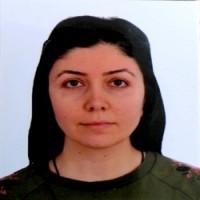
She is an Associate Professor at Sinop University, Faculty of Arts and Sciences, Department of Mathematics. She received his bachelor's degree in 2009, master's degree in 2012 and PhD degree in 2017 and continues her studies in various fields such as approximation theory, statistical type convergence, summability theory.


Prof. Dr. Hülya ÖZLER
Sinop Üniversitesi Fen Edebiyat Fakültesi Biyoloji Bölümü

Sinop Üniversitesi Su Ürünleri Fakültesi'nde görev yapmakta olup lisans öğrenimini 1995, yüksek lisans öğrenimini 1998 ve doktorasını 2005 yılında tamamlamıştır. Su Ürünleri Yetiştiriciliği, Balık Hastalıkları alanında çalışmalarına devam etmektedir.
AKADEMİK GÖREVLER
Prof. Dr. Sinop Üniversitesi Su Ürünleri Fakültesi 2020-
Doç. Dr. Sinop Üniversitesi Su Ürünleri Fakültesi 2015-2020
Dr. Öğretim Üyesi Sinop Üniversitesi Su Ürünleri Fakültesi 2007-2015
Dr. Öğretim Üyesi Ondokuz Mayıs Üniversitesi Su Ürünleri Fakültesi 2005-2007
Arş. Gör. Ondokuz Mayıs Üniversitesi Su Ürünleri Fakültesi 1996-2005
ÇALIŞMA ALANLARI
(i) Ana alan: Su Ürünleri Hastalıkları, Balık Parazitleri
(ii) diğer alanlar: Mikrobiyoloji,
(iii) güncel araştırma alanları: Balık Parazitleri


Prof. Dr. Emel Çankaya, who is the Head of Statistics Department of Faculty of Arts and Sciences of Sinop University, holds MSc and PhD degrees from the University of Sheffield, UK, and continues her studies on topics such as "Classical, Robust and Bayesian Regression Modeling of Medical and Ecological Problems, Classification Problems of Rare Events, Machine Learning". She also took part in BAP, TUBITAK (1001 and 1002) projects as either manager or researcher.
Language Editors (English)






ÇALIŞMA ALANLARI
(i) Ana alan: Meiobentoloji, Denizel meiobentik organizmaların dağılımı, bentik nematodların taksonomisi
(ii) diğer alanlar: Meiobentik organizmaların kirlilikle ilişkisi
(iii) güncel araştırma alanları: Ekstrem denizel ortamlarda yaşayan bentik nematodlar, Karadeniz’in suboksik ve anoksik zonları, Derin denizler

Articles published in Sinopjns are licensed under CC BY-NC 4.0. 



